Public Administration Circular No.12/93
Duty Hours of Motor Vehicle Drivers

Public Administration Circular No.12/93
Duty Hours of Motor Vehicle Drivers

Public Administration Circular No.11/93
Re-in statement of Returnees who were displaced
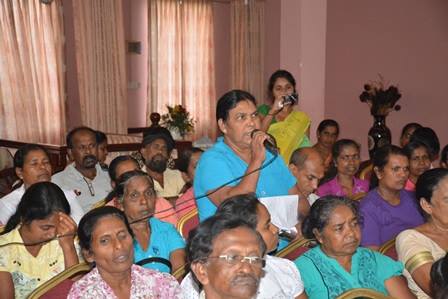
PUBLIC REPRESENTATION COMMITTEE REPORT – PUBLIC DISCUSSION
MATALE, KANDY, AKKARAIPATTU, BATTICALOA, KANTHALE
8th, 9th, 13th, 14th JULY, 2016
CENTRE FOR POLICY ALTERNATIVES
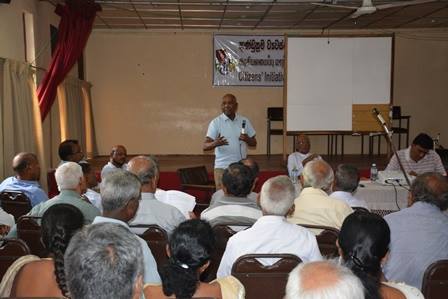
PUBLIC REPRESENTATION COMMITTEE REPORT – PUBLIC DISCUSSION
KEGALLE, KURUNEGALA
8-9TH JULY, 2016
CENTRE FOR POLICY ALTERNATIVES
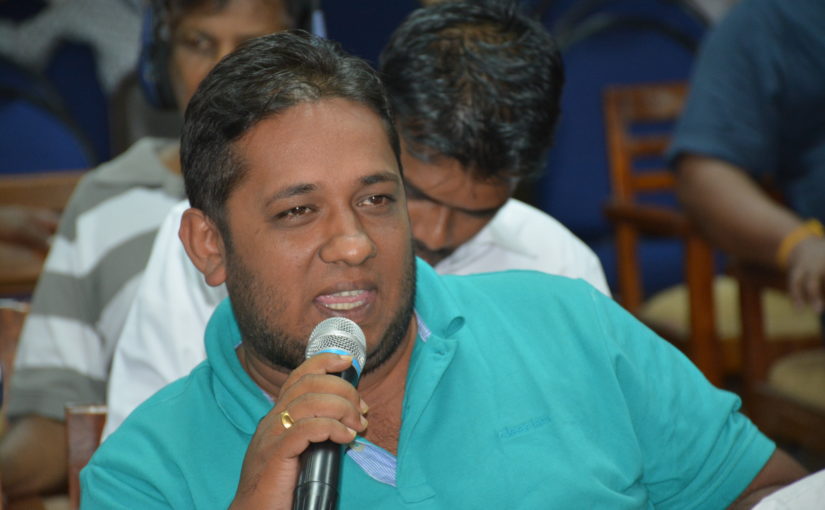
Discussion on Public Representation Committee Report on Constitutional Reform
13/06/2016
Organization of Professional Associations (OPA)
discussion-on-public-representation-committee-report-on-constitutional-reform-english-13-06-2016-opa
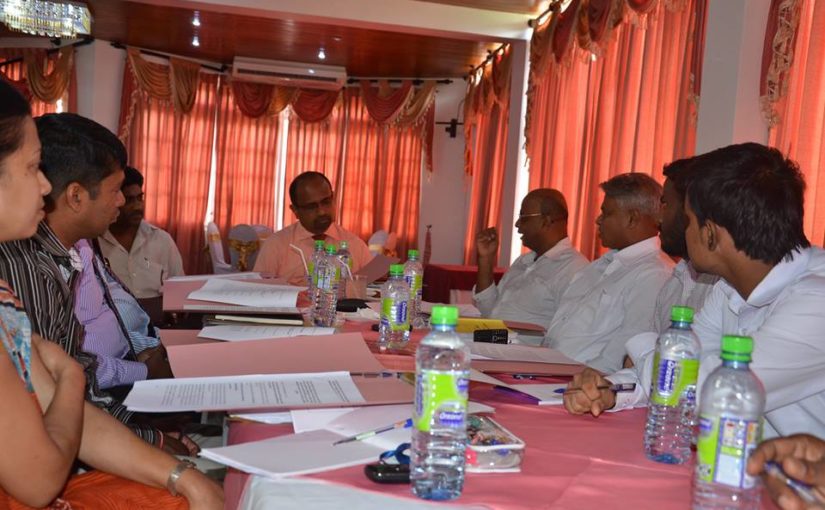
Citizens Collective for a New Sri Lankan Constitution
Date: 08/Dec/2015
Time: 3.00 to 5.30 PM
Venue: Hector Kobbekaduwa Agrarian Research and Training Centre
Convened by: Centre for Policy Alternatives
citizens-collective-for-a-new-sri-lankan-constitution
No. 1933/13 – MONDAY, SEPTEMBER 21, 2015,
Ministries and Functions the Official Government Gazette
OFFICE ON MISSING PERSONS (ESTABLISHMENT, ADMINISTRATION AND DISCHARGE OF FUNCTIONS) ACT, No. 14 OF 2016
CONSUMER AFFAIRS AUTHORITY ACT, No. 09 OF 2003
RIGHT TO INFORMATION ACT, No. 12 OF 2016

Cost of Living Allowances

Payment of Additional Allowances to Public Servants and Pensioners

Personnel for the conducting of the Provincial Council Elections – 1993

Payment for Disciplinary Inquiries

Granting Special Leave during the Ramazan Season

Election to Provincial Councils – 1993 Vehicles for the Transport of Staff and Material

Granting Concessions to Graduates Employed in Clarical and Allied Grades in the Public Service

Special Advance to Public Officers 1993

Payment of Additional Allowance to Public Officers and Pensioners

Preparation of Infrastructure for the implementation of the official Languages Law

Expediting of Inquiries regarding Public Officers – Amendments to the Establishments Code – Chapter XLVIII

Amendment to Chapter VII, Sub-Section 12:6:1 of the Establishments Code

Promotion to Class I of the Storekeepers Service – 1988

Granting of Relief under Public Administration Circular No. 32/89(iv) to reinstated Public officers who participated at the 1980 July strike.

Use of Official Vehicles by Officers who imported vehicles on concessionary terms

Sick Leave – Chapter XII – Establishments Code

Promotion to Class I of the General Clerical Service 1990

Funding, Accounting and Reporting Procedures for Divisional Secretariats

Maternity Leave – Establishment Code Chapter XII

Taking the Administration of the People

Annual Transfers of Officers of the Combined Services

Addressing the elected Members of Local Authorities

Provision of Services Supplies during the Ramazan Season.

Exceptions to general rules affecting employment in the public sector -Terrorist Affected Families

Importation of Vehicles on Concessionary Terms

Trainees in the Public Sector

Non- compliance with Public Administration Circular Instructions

Granting of Permanent Appointments to Substitute Employees

Loan for Construction / Completion of a House Chapter XXIV – Establishments Code

Duty Hours and Leave of Public Officers

Revision of Salary -Supra Grade of the General Clerical Service

Payment of an additional allowance of Rs.100/- to Government Employees and Pensioners
adsdas
AN ORDINANCE TO PROVIDE FOR THE REGISTRATION AND
CONTROL OF ORPHANAGES AND OTHER INSTITUTIONS FOR THE
BOARDING, CARE AND MAINTENANCE OF ORPHANS AND
DESERTED CHILDREN, AND FOR PURPOSES CONNECTED WITH
THE MATTERS AFORESAID.
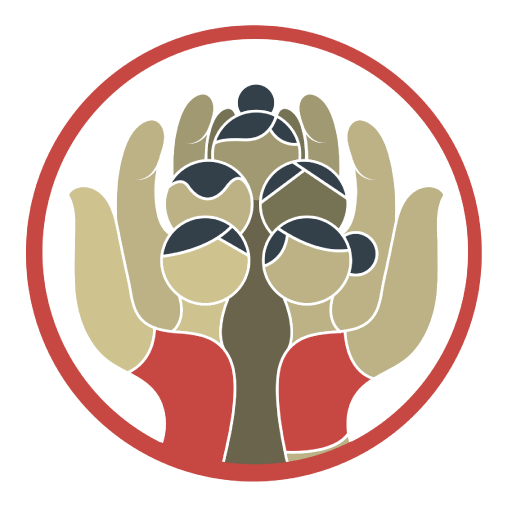


Compensation for public officers who suffer injury whilst on duty – Amendments to the Public Administration Circular No.346 of 8th October, 1986

Mileage : Motor Cars
Chapter XIV : Establishments Code

Leave to be spent out of the Island – Establishments Code – Chap. XIII

Appointments on a Casual Basis

Payment of Compensation to departments of Personal of the Armed Forces, Police, Public Officers, and Public Corporation Employees abducted by terrorists or who have disappeared due to terrorist activity

Amendments to the Establishments Code Special Leave – Chapter XII

Persons appointed to Minor Grades deployed as stenographers, typists or clerks in Sinhala, Tamil or English Medium.

Graduate-ship of the Institute of Chemistry (Ceylon)

22 January 2016, Colombo, Sri Lanka: This submission by the Centre for Policy Alternatives (CPA) outlines our general views on the nature and form of a new constitutional settlement for Sri Lanka. It focuses on the major constitutional issues that are currently the subject of public debate and which featured in the democratic decision of the people of Sri Lanka in the two historic elections of 2015 in both changing the government and mandating the current Parliament to enact a new constitution. We are prepared to submit more detailed explanations and proposals, orally or in writing, if so invited by the Public Representation Commission, the Constitutional Assembly, and/or Parliament.
Read the full text of the submission here . Download it as a PDF here .
Listen to Dr. Paikiasothy Saravanamuttu, Executive Director of CPA, present this submission to the Public Representation Commission (PRC) on 22 January 2016 here .
Listen to the audio from the audio player below.



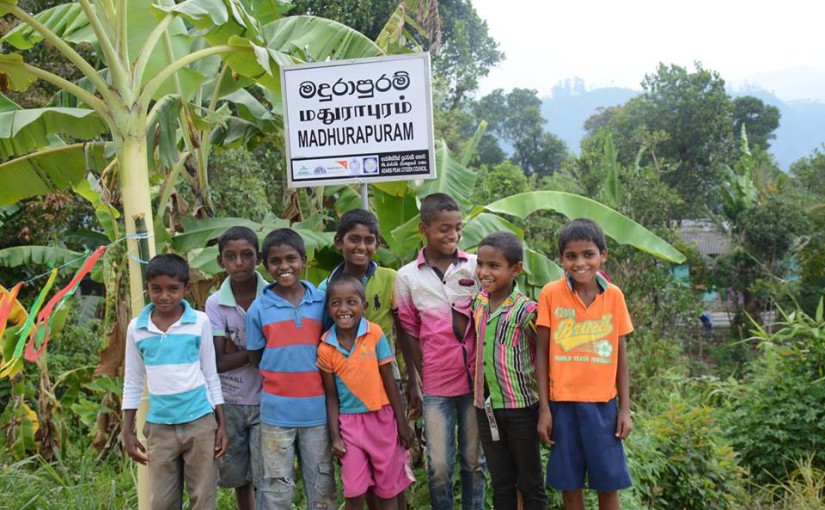
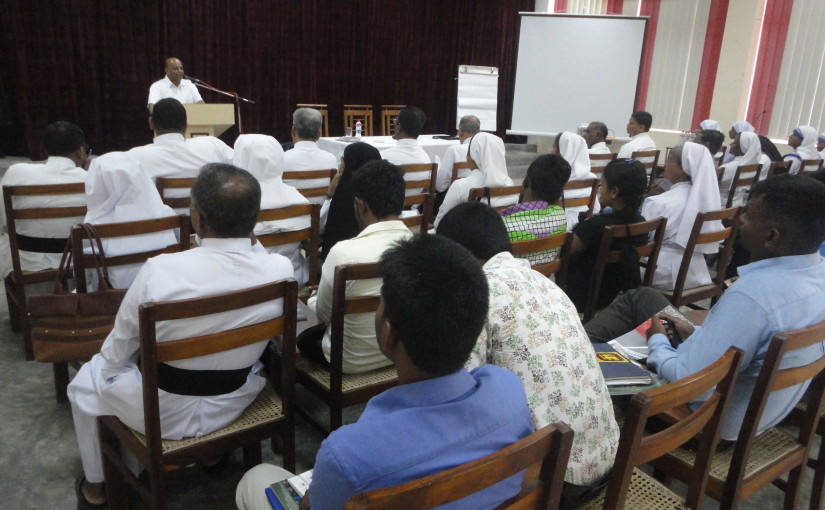
Programmes-
Polonnaruwa
Kanthale
Hatton
Badulla- Persons with disability
Monaragala
Galle


Graduation of the institute of Chemistry (Ceylon)

Ceiling on remuneration receivable from Government

Workers’ representatives in administration – Posts of Assistant Secretaries to Ministries, ( NON SLAS)

Leave to officers re-employed after retirement – New Establishments Code – Chapter XII

Payment of Pay and Allowances to Government Employees, Local Government Employees and Corporate Employees Mobilized for Special Police Reserve

Census of under-employed graduates serving in clerical and parallel grades

Trade union representations to the salaries review committee

Public Administration Circular No. 305 ( Amendment )

Station Allowance – New Establishments Code – Chapter VIII subsection 12:1

Sick Leave- Establishments Code – Chapter XII

Loans for purchase of a push Bicycle – Establishments Code – Chapter XXIV

Revised Establishments Code Part 1 – (English)

Efficiency Bars and the Special Increment granted with effect from 18.07.1981 to Public officers who did not vacate office during the period of 17th of to 22nd July 1980.
Cabinet Ministers
Hon. Maithripala Sirisena
President
Presidential Secretariat ,
Colombo 01
Hon. Ranil Wickremesinghe
Prime Minister
No. 58 , Sir Ernest de Silva Mawatha ,
Colombo 07
Hon. John Amarathunga
Minister of Tourism Development and Christian Religious Affairs
6th Floor, Rakshana Mandiriya,
No.21, Vaushall Street, Colombo 02
Hon. Gamini Jayawickrema Perera
Minister of Sustainable Development and Wildlife
9th Floor, Sethsiripaya,
Stage I,
Battaramulla.
Hon. Nimal Siripala de Silva
Minister of Transport and Civil Aviation
7th Floor, Sethsiripaya, Stage II,
Battaramulla.
Hon. Mangala Samaraweera
Minister of Foreign Affairs
Republic Building, Colombo 01.
Hon. S.B. Dissanayake
Minister of Social Empowerment and Welfare
1st Floor, Sethsiripaya,
Stage II,
Battaramulla.
Hon. W.D.J. Seneviratne
Minister of Labour and Trade Union Relations
2nd Floor,
Labour Secretariat,
Colombo 05.
Hon. Lakshman Kiriella
Minister of Higher Education and Highways
Maganeduma Mahamedura, No.216,
Denszil Kobbekaduwa Mawatha,
Koswatta, Battaramulla.
Hon. (Dr.) Sarath Amunugama
Minister of Special Assignments
6th Floor, Sethsiripaya,
Battaramulla.
Hon. Rauff Hakeem
Minister of City Planning and Water Supply
Lakdiya Medura, No.35,
New Parliament Road, Pelawatta,
Battaramulla.
Hon. Anura Priyadharshana Yapa
Minister of Disaster Management
Vidya Mawatha,
Colombo 07.
Hon. Susil Premajayantha
Minister of Science, Technology and Research
3rd Floor,
Stage I, Sethsiripaya,
Battaramulla.
Hon. (Dr.) Rajitha Senaratne
Minister of Health, Nutrition and Indigenous Medicine
385, Rev. Baddegama Wimalawansa Thero Mawatha,
Colombo 10.
Hon. Ravi Karunanayake
Minister of Finance
The Secretariat, Colombo 01.
Hon. Mahinda Samarasinghe
Minister of Skills Development and Vocational Training
Nipunatha Piyasa, 354/2,
Elvitigala Mawatha,
Colombo 05.
Hon. Vajira Abeywardena
Minister of Home Affairs
Independence Square,
Colombo 07.
Hon. S.B. Navinne
Minister of Internal Affairs, Wayamba Development and Cultural Affairs
8th Floor, Sethsiripaya,
Battaramulla.
Hon. Rishad Bathiudeen
Minister of Industry and Commerce
P.O.Box 570, 73/1,
Galle Road, Colombo 03.
Hon. Patali Champika Ranawaka
Minister of Megapolis and Western Development
17th and 18th Floors, “SUHURUPAYA”,
Subhuthipura Road,
Battaramulla.
Hon. Mahinda Amaraweera
Minister of Fisheries and Aquatic Resources Development
New Secretariat, Maligawatta,
Colombo 10
Hon. Navin Dissanayake
Minister of Plantation Industries
11th Floor, Sethsiripaya,
2nd Stage, Battaramulla.
Hon. Ranjith Siyambalapitiya
Minister of Power and Renewable Energy
No.72, Ananda Coomaraswamy Mawatha,
Colombo 07
Hon. Duminda Dissanayake
Minister of Agriculture
Govijana Mandiraya, 80/5,
Rajamalwatta Avenue,
Battaramulla.
Hon. Vijith Vijayamuni Zoysa
Minister of Irrigation and Water Resources Management
No.11, Jawatta Road,
Colombo 05.
Hon. (Dr.) Wijayadasa Rajapaksa
Minister of Buddha Sasana
No.135, Sreemath Anagarika Dharmapala Mawatha,
Colombo 07.
Hon. (Dr.) Wijayadasa Rajapaksa
Minister of Justice
Superior Court Complex,
Colombo 12.
Hon. P. Harison
Minister of Rural Economy
CWE Secretariat Building, 3rd Floor,
No.27, Vauxhall Street,
Colombo 02.
Hon. Kabir Hashim
Minister of Public Enterprises Development
Levels 13 & 37, West Tower,
World Trade Centre,
Echelon Square, Colombo 01.
Hon. Ranjith Madduma Bandara
Minister of Public Administration and Management
Independence Square,
Colombo 07.
Hon. Gayantha Karunathilaka
Minister of Parliamentary Reforms and Mass Media
Asidisi Medura, No.163,
Kirulapone Mawatha, Polhengoda,
Colombo 05.
Hon. Sajith Premadasa
Minister of Housing and Construction
02nd Floor, Sethsiripaya,
Battaramulla
Hon. Arjuna Ranatunga
Minister of Ports and Shipping
No.19, Chaithya Road,
Colombo 01.
Hon. U. Palani Digambaram
Minister of Hill Country New Villages, Infrastructure and Community Development
No.45, St. Michaels Road,
Colombo 03.
Hon. (Mrs.) Chandrani Bandara
Minister of Women and Child Affairs
Sethsiripaya ( Stage II),
5th Floor, Battaramulla.
Hon. (Mrs.) Thalatha Atukorala
Minister of Foreign Employment
No. 51/2/1, 2nd Floor, Assert Building,
York Street,
Colombo 01.
Hon. Akila Viraj Kariyawasam
Minister of Education
Isurupaya, Pelawatta,
Battaramulla.
Hon. M.H.A. Haleem
Minister of Posts, Postal Services and Muslim Religious Affairs
6th & 8th Floors, Postal Headquarters Building,
310, D.R. Wijewardana Road,
Colombo 10.
Hon. Faiszer Musthapha
Minister of Provincial Councils and Local Government
No.330, Union Place,
Colombo 02.
Hon. D.M. Swaminathan
Minister of Prison Reforms, Rehabilitation, Resettlement and Hindu Religious Affairs
No.146, Galle Road,
Colombo 03.
Hon. Chandima Weerakkody
Minister of Petroleum Resources Development
No.80, Sir Earnest De Silva Mawatha,
Colombo 07.
Hon. Dayasiri Jayasekara
Minister of Sports
No.9, Philip Gunawaardana Road,
Colombo 07.
Hon. Sagala Ratnayake
Minister of Law & Order and Southern Development
No.25, Whiteaways Building,
Sir Baron Jayathilake Mawatha,
Colombo 01.
Hon. Harin Fernando
Minister of Telecommunication and Digital Infrastructure
79/1, 5th Lane, Colombo 03.
Hon. Mano Ganesan
Minister of National Co-existence Dialogue and Official Languages
40, Buthgamuwa Road,
Rajagiriya, P.O. Box 1566,
Colombo.
Hon. Daya Gamage
Minister of Primary Industries
No.80/5, Govijana Mandiriya,
Rajamalwatta Avenue,
Battaramulla.
Hon. Malik Samarawickrema
Minister of Development Strategies and International Trade
6th Floor, West Tower,
World Trade Centre,
Colombo 01.
State Ministers
Hon. A.H.M. Fouzie
State Minister of National Integration & Reconciliation
No 21, 3rd Floor, Standard Chartered Bank Building,
Janadhipathi Mawatha,
Colombo 01.
Hon. Dilan Perera
State Minister of Highways
Maganeduma Mahamedura, No.216,
Denszil Kobbekaduwa Mawatha,
Koswatta, Battaramulla.
Hon. T.B. Ekanayake
State Minister of Lands
Mihikatha Medura, Land Secretariat,
1200/6, Rajamalwatte Avenue,
Battaramulla.
Hon. Piyankara Jayarathne
State Minister of Provincial Councils and Local Government
No.330, Union Place,
Colombo 02.
Hon. Lakshman Yapa Abewardana
State Minister of Finance
The Secretariat, Colombo 01.
Hon. Ravindra Samaraweera
State Minister of Labour & Trade Unions Relations
2nd Floor,
Labour Secretariat,
Colombo 05.
Hon. V. Radhakrishnan
State Minister of Education
Maganeduma Mahamedura, No.216,
Denszil Kobbekaduwa Mawatha,
Koswatta, Battaramulla.
Hon. Palitha Range Bandara
State Minister of Skills Development & Vocational Training
Nipunatha Piyasa, 354/2,
Elvitigala Mawatha,
Colombo 05.
Hon. Dilip Wedaarachchi
State Minister of Fisheries & Aquatic Resources Development
New Secretariat, Maligawatta,
Colombo 10
Hon. Niroshan Perera
State Minister of National Policies & Economic Affairs
Miloda (Old Times Building), 1st Floor,
Bristol Street,
Colombo 01.
Hon. Ruwan Wijayawardene
State Minister of Defence
No.15/5, Baladaksha Mawatha,
Colombo 03.
Hon. M.L.A.M. Hisbullah
State Minister of Prison Reforms, Rehabilitation, Resettlement and Hindu Religious Affairs
Asidisi Medura, No.163,
Kirulapone Mawatha, Polhengoda,
Colombo 05.
Hon. Mohan Lal Grero
State Minister of Higher Education
Maganeduma Mahamedura, No.216,
Denszil Kobbekaduwa Mawatha,
Koswatta, Battaramulla.
Hon. A.D. Champika Premadasa
State Minister of Industry & Commerce
P.O.Box 570, 73/1,
Galle Road, Colombo 03.
Hon. Maheswaran Wijayakala
State Minister of Child Affairs
Sethsiripaya ( Stage II),
5th Floor, Battaramulla.
Hon. Arjuna Sujeewa Senasinghe
State Minister of International Trade
6th Floor, West Tower,
World Trade Centre,
Colombo 01.
Hon. Wasantha Naresh Parakkrama Senanayake
State Minister of Irrigation & Water Resources Management
No.11, Jawatta Road,
Colombo 05.
Hon. Wasantha Aluwihare
State Minister of Agriculture
Govijana Mandiraya, 80/5,
Rajamalwatta Avenue,
Battaramulla.
Hon. Sudarshini Fernandopulle
State Minister of City Planning & Water Supply
No.11, Jawatta Road,
Colombo 05.
Deputy Ministers
Hon. Sumedha G Jayasena
Deputy Minister of Sustainable Development & Wildlife
9th Floor, Sethsiripaya,
Stage I,
Battaramulla.
Hon. Susantha Galgamuwa Punchinilame
Deputy Minister of Public Administration & Management
Independence Square,
Colombo 07.
Hon. Ammer Ali Seyed Mohammad Sihabdeen
Deputy Minister of Rural Economy
CWE Secretariat Building, 3rd Floor,
No.27, Vauxhall Street,
Colombo 02.
Hon. Lasantha Alagiyawanna
Deputy Minister of Megapolis & Western Development
17th and 18th Floors, “SUHURUPAYA”,
Subhuthipura Road,
Battaramulla.
Hon. Indika Bandaranayaka
Deputy Minister of Housing & Construction
02nd Floor, Sethsiripaya,
Battaramulla.
Hon. Mohomed Casim Mohomed Faizal
Deputy Minister of Health, Nutrition & Indigenous Medicine
385, Rev. Baddegama Wimalawansa Thero Mawatha,
Colombo 10.
Hon. Arachchige Ganepola Dulip Pandula Perera Wijesekara
Deputy Minister of Post, Postal Services & Muslim Religious Affairs
6th & 8th Floors, Postal Headquarters Building,
310, D.R. Wijewardana Road,
Colombo 10.
Hon. Lakshman Wasantha Perera
Deputy Minister of Plantation Industries
11th Floor, Sethsiripaya,
2nd Stage, Battaramulla.
Hon. Nishantha Muthuhettigamage
Deputy Minister of Ports & Shipping Affairs
No.19, Chaithya Road,
Colombo 01.
Hon. Dunesh Gankanda
Deputy Minister of Disaster Management
Vidya Mawatha,
Colombo 07.
Hon. Anoma Gamage
Deputy Minister of Petroleum Resources Development
No.80, Sir Earnest De Silva Mawatha,
Colombo 07.
Hon. Harsha de Silva
Deputy Minister of Foreign Affairs
Republic Building, Colombo 01.
Hon. Ajith P. Perera
Deputy Minister of Power & Renewable Energy
No.72, Ananda Coomaraswamy Mawatha,
Colombo 07
Hon. Eran Wickramaratne
Deputy Minister of Public Enterprise Development
Levels 13 & 37, West Tower,
World Trade Centre,
Echelon Square, Colombo 01.
Hon. Ranjan Ramanayake
Deputy Minister of Social Empowerment & Welfare
1st Floor, Sethsiripaya,
Stage II,
Battaramulla.
Hon. Ashoka Abeysinghe
Deputy Minister of Transport
7th Floor, Sethsiripaya, Stage II,
Battaramulla.
Hon. Arundika Fernando
Deputy Minister of Tourism Development & Christian Religious Affairs
6th Floor, Rakshana Mandiriya,
No.21, Vaushall Street, Colombo 02
Colombo 02.
Hon. Basnayake Mudiyanselage Dilhan Tharanath Basnayake
Deputy Minister of Telecommunication & Digital Infrastructure
79/1, 5th Lane, Colombo 03.
Hon. Habeeb Mohamed Mohamed Harees
Deputy Minister of Sports
No.9, Philip Gunawaardana Road,
Colombo 07.
Hon. Karunarathna Paranavithanage
Deputy Minister of Parliamentary Reforms and Mass Media
Asidisi Medura, No.163,
Kirulapone Mawatha, Polhengoda,
Colombo 05.
Hon. Antony Nimal Lansa Warnakulasuriya
Deputy Minister of Home Affairs
Independence Square,
Colombo 07.
Hon. Anurudha Lanka Pradeep Jayarathne
Deputy Minister of Mahaweli Development & Environment
No. 82, Rajamalwatta Road,
Sampathpaya, Battaramulla
Hon. Sarathi Dushmantha
Deputy Minister of Justice
Superior Court Complex,
Colombo 12.
Hon. Sarathi Dushmantha
Deputy Minister of Buddha Sasana
No.135, Sreemath Anagarika Dharmapala Mawatha,
Colombo 07.

Revision of obligatory period of service in respect of no-pay leave within the island

Particulars of Members of the Government Officers’ Benefit Association and the Public Service Mutual Provident Association who are released on no-pay leave for study/ employment abroad

Salary Advance to public officers and employees of public corporations who have suffered property damage and/ or loss of movables as a result of disturbances that occurred between 1st August , 1984 and 31st December , 1984.

Study Leave – Sri Lanka Accountants’ Service

Implementation of the Minute of the Middle Level Unified Technical Services

Loans/Advances to Public Officers

Special Advance to Public Officers – 1986

Drunkenness or smelling of liquor

Duty leave , to Members of poor relief committees

Revision of obligatory period of service in respect of full pay study leave within the island


Approval of Leave for a public officer of the Combined Services Proceeding on duty abroad

Revision of obligatory period of service in respect of full pay study leave within the island

No – Pay Leave for spouses of officers posted abroad

Officers who vacated posts in July 1980

Winding up of the department of credit councils

Concessions to Ex- servicemen


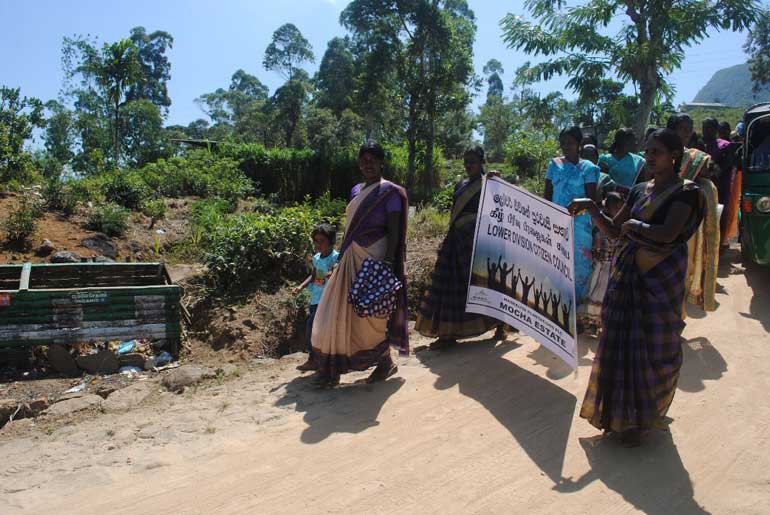
The Outreach and Capacity Building team of the CPA, working together with the Central Provincial Council and the management of the Mocha Estate, helped provide addresses to 1,500 families of the plantation sector in Maskeliya.
‘Vilaasam’, a project inaugurated in 2013 began by providing road names and addresses to families living on estates in Passara, Badulla. Since then, CPA has been advocating and negotiating with local authorities to provide the same basic human rights to as many estate families as possible.
This phase of the project was made possible largely due to extensive cooperation on the part of the estate management and the superintendent, the Ambagamuwa Divisional Secretariat, Ambagamuwa Pradeshiya Saba, the Grama Niladhari Officer at Mocha Estate, and the Maskeliya Police Station.
CPA facilitators established three Citizen Councils in the estate and worked through the residents of the estate to ensure that this basic civil right was protected. Communities that have lived on plantations for generations still do not have addresses to the homes they inhabit. This has proven an extreme challenge in the reception of correspondence in relation to civil administration and education circulars from schools or universities.
The event on Sunday was a great celebration for these families. Numbers were put up on the houses in the three new areas demarcated in the estate. Students from the Mocha Estate school began the proceedings with the singing of the National Anthem in Tamil. Several cultural performances were carried out. Leaders from the three Citizens Councils handed over a directory that listed each family’s address to representatives from the Grama Sevaka office, the Maskeliya police, the principal of the estate school and the estate superintendent.
CPA Senior Researcher Lionel Guruge who conceived and leads the execution of the Vilaasam project addressed the crowd that now, having received one of their fundamental rights, he hoped that this would open the door for greater achievements. In doing so, he reminded the people of the importance of using their voices to hold accountable authorities and local authorities to ensure their rights were fully upheld.
CPA Executive Director Dr. Paikiasothy Saravanamuttu’s address noted the event as a celebration of the enjoyment of fundamental human rights by fellow Sri Lankans.
“It is sad that in the year 2016, we are celebrating that our fellow citizens are getting addresses. While we should acknowledge that this is going to change, we should also be ashamed that we have let it go on for so long. We want a Sri Lanka where all citizens are equal.”
He added that at this time where a new constitution was being drafted for the country, he hoped that all Sri Lankans will be treated equally by the State and by each other.
Taken From – Daily FT

by Lionel Guruge
The process of receiving submissions from the public for the new constitution is currently underway. The Public Representation Committee on Constitutional Reform has already begun travelling to all districts for this purpose, and submissions can be submitted verbally or in writing. Unfortunately, the enthusiasm to foster any discussion regarding this subject seems to lie more with civil society than with the government itself. More concerning is that the government does not seem to have reached an agreement on many aspects of the constitutional process, especially in terms of how the new constitution must be made and what must be included in it. Statements made by the President and the Prime Minister since January ninth have instilled a sense of faith in the system amongst citizens, and keeping with these promises of good governance, the government should show more enthusiasm in this process. Since the establishment of the Public Representation Committee on Constitutional Reform, many civil society representatives have already submitted proposals on behalf of the public, and many more hope to submit their proposals soon.
However, as expected with such monumental ventures, dissenters and ‘spoilers’ are not far behind in their efforts to disrupt the process. Indeed, opposition can be found in various pockets of society. At the forefront of this campaign are the religious and racial extremist groups as well as defeated political candidates that highlight their political ideologies and narrow-minded thinking by their actions and speech.
Religion is a deeply private and sensitive topic. Yet, these spoilers attempt to disassociate privacy from religion and portray religion to be at the centre of a democratic process such as constitution making. These groups prey on the sensitive nature of religion and thereby directly influence a large portion of society (especially the Sinhala Buddhist population). It must be understood that such initiatives do little to protect the sanctity of religion and more to disrupt the harmony within society so that these extremist groups may promote their own agendas. In order to counter such negative aspirations, Buddhist leaders must publish immediate statements against these initiatives. When queried about the Buddhism clause in the current constitution, the Prime Minister has declared that it will not change or be affected during the redrafting process. Those that believe such ideologies to be true should also consider the justification behind capitalising on religion within the process of discussing the democratic, governance-related exercise that is constitution making.
The 1978 Constitution currently in practice addresses religion in Chapter Two in the following manner:
9. “The Republic of Sri Lanka shall give to Buddhism the foremost place and accordingly it shall be the duty of the State to protect and foster the Buddha Sasana, while assuring to all religions the rights granted by Articles 10 and 14(1)(e)”
Article 10 and 14 state:
10. “Every person is entitled to freedom of thought, conscience and religion, including the freedom to have or to adopt a religion or belief of his choice.”
14. (1) Every citizen is entitled to
(e) the freedom, either by himself or in association with others, and either in public or in private, to manifest his religion or belief in worship, observance, practice or teaching.
As the Constitution clearly indicates, the rights of all religions in Sri Lanka are upheld as a Fundamental Right. It is important to note that the new constitution will not threaten this right in any way.
Sri Lankans are riddled with a myriad of issues that plague them on a daily basis. A new constitution might not be the solution to all these issues, but as the Supreme law of the land, it could be considered a great step forward in terms of progress. Such an opportune moment is clearly presented to us, and as civil society representatives actively invested in the constitutional process, we urge society to recognise the sensitivity of topics such as religion and to not take action to disrupt this process purely on the basis of such a sensitive topic.
With this new constitution comes the very real possibility of rearranging the structure of governance in Sri Lanka, especially in terms of abolishing executive power and devolving power in a more meaningful manner that benefits the public. It is this process that extremist groups are attempting to disrupt, and religious leaders, scholars, and politicians who truly care about the development of Sri Lanka and its residents should take an active stand against such initiatives. The process of drafting a new constitution reaches far beyond party-driven politics; it is a document with a legitimacy that will not be questioned for a long period of time, and one that will truly serve the interests of the nation. To hinder such a process due to narrow-minded, party driven political ideologies is to tamper with the lives of our children, our future generation.
Perhaps a day will come when Sri Lankan society will be open to discuss the association between religion and governance. It is the personal preference of this writer to exclude religion from the constitution entirely. Yet, this is not the time for Sri Lanka to consider such an alternative. The discussion of such a sensitive topic should be postponed for a later date; instead, the focus should be more on essential political reform processes that can be achieved through the new Constitution.
One of the main reasons issues arise within the constitution making discourse is due to ignorance with regard to constitution making. Many do not possess a broad understanding of our constitution, which is what ‘spoilers’ capitalize on. A remedy for this could be sought within the new constitution itself; the new constitution should stipulate that education on constitutional provisions should be included into the school curriculum in an incremental fashion from grade 3 to 11. Only then will citizens be molded who take a proactive stance in constitution making. Such persons would also be equipped with the knowledge to differentiate between those that aim to advance the agenda of the nation and those that aim to advance only their personal agendas.
The role of a proactive citizen does not end after providing input to the new constitution. Indeed, the constitution can only provide national-level instructions in one or two sentences. In order to strengthen these provisions and ensure that it reaches and influences the lives of citizens at a grassroots level, equally strong Acts, By Laws, and Statutes must be drafted at sub-national levels of governance. Public consultation must be mandatory during the process of drafting such legislations to ensure a truly democratic process fueled by participatory governance. Only then could a Constitution be regarded as one that serves the public.
The role of the media is severely understated during this current constitutional process. Both state and private media can go a long way in facilitating a broader discourse on the subject and reversing counter-productive attitudes. All media personnel should consider this to be a prime responsibility, and a concerted effort should be made if they wish to see a harmonious Sri Lanka.
This constitution is not for a privileged few. It is for all Sri Lankans regardless of their ethnicity, religion, gender, lifestyle choices, or personal beliefs. This is a historical moment to ensure a truly representative constitution is made for Sri Lanka. As Sri Lankans, let us not forgo this responsibility.

Implementation of the recommendations of the Report of officials Committee appointed to investigate and report on the need for a Unified Technical Service Comprising all Middle Level Technical Officers.

Payment for Disciplinary Inquiry

Compensation to Disabled Officers and employees, and to the Windows and Children of Officers and employees killed on duty

Salaries and Allowances to a Private Secretary

Implementation of the Minute of Middle Level Unified Technical Service

The widowers’ and Orphans’ Pension Amendment Act, No. 19 of 1985
AN ACT TO AMEND THE LOCAL AUTHORITIES ELECTIONS ORDINANCE

Census of Public and Corporation Sector Employment – 1985

Use of Government Emblem on Government Vehicles and fuller use of Government Vehicles

Salaries and Pensions payable to public officers who have been re-instated or retired after vacation of post in July 1980

Overtime eligibility

Winding up of the Department of Credit Councils

Revision of obligatory period of services in respect of full pay study leave abroad and no pay leave for study /employment abroad to public officers

Payments for disciplinary inquiries

Schemes of Recruitment

Salaries and Allowances to Prime Minister, Cabinet Ministers , Project Ministers, District Ministers and Deputy Ministers.

Revision of Mileage rates under chapter XIV of the Establishment Code

Salaries of Public Officers appointed to act in additional posts and or re-employed pensioners

Conservation of electricity

Sixth amendment to the constitution of the Democratic Socialist Republic of Sri Lanka

Casual and temporary employees

Remuneration on re-employment in the public service

Salary Advance to public officers who suffer property damage and/or loss of movables as a result of disturbances that occur in the country – Establishments Code Chapter XXIV

Amalgamation of Class 11 Grade 11and Class 11 Grade 1 of the Sri Lanka Accountants’ Service

Ceiling on remuneration receivable from Government

Cost of living allowance

Salary Advance to public officers and employees

Travelling expenses on change of station

Refund of credit council contributors to officers who ceased to be employed in the public service on or before 31st December , 1985 (Retirement, Death, ETC)

Public officers retired subjected to section 12 of the Minutes on Pensions and subsequently exonerated of all charges

Absorption of officers with inadequate Educational Qualifications to parallel Grades in the Combined Services
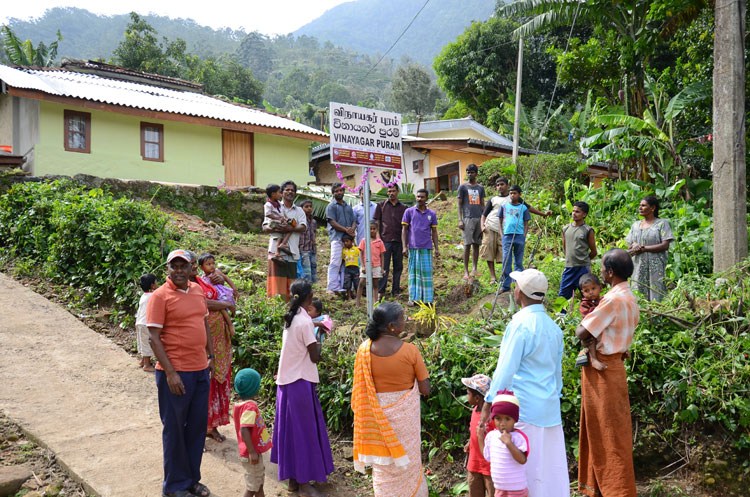
By C. De Silva
A number of recent cases and complaints from many parts of Sri Lanka have resulted in court orders and directives in support of existing legal and constitutional provisions ensuring Language Equality, according to a senior researcher who manages a project promoting language rights in Sri Lanka. In a recent interview Lionel Guruge, the head of the Outreach Unit of the Centre for Policy Alternatives, which has implemented a programme in 13 districts of Sri Lanka, outlined the main legal interventions arising during the course of the programme.
During the period from 2011 to date, a number of cases relating to language were submitted before the Official Languages Commission(OLC) and the Human Rights Commission of Sri Lanka,(HRCSL) ranging from issues like the lack of Tamil language in the destination boards of private buses, language on currency notes, availability of courses in both languages in state universities, changing name boards in schools, information on government websites being made available in all languages and ensuring that hospitals have translators and bilingual documentation among others
One main case submitted was on the subject of bus destination boards and this was successful in the sense that Human Rights Commission of Sri Lanka and the Official Languages Commission both issued directives that bilingual destination boards should be in place in all public transport.
Street signs in a number of local authorities were discovered to be in one language only and therefore moves were made to regularise this matter in line with Official Language policy which makes it mandatory for all public signage to be in both the official languages. Submissions thus called on Local Authorities to ensure that all place signboards should be in both languages, to which the respondents promised to comply. Although such commitments have been obtained in writing the practicality is that in some cases action has not been carried out.
The Consumer Affairs Authority has been petitioned on the subject of many consumer items from batteries to pressure cookers, which do not contain translated information in the public interest, however there is no real way of holding them accountable so this has been futile overall.
Another case of particular relevance to daily life is the matter of the lack of translations on pharmaceuticals clarifying dosage, side effects, contraindications and other very critical information on drugs and cosmetic products. The lack of this important information in a language one can understand has the potential to be almost life threatening as can be understood in cases of medicinal drugs and even some more dangerous cosmetic items such as hair dye or harsher chemical preparations. Out of Court negotiations, backed by HRCSL directive, with the Cosmetic Devices and Drugs Authority proved nevertheless to be very protracted and difficult but a final agreement was reached that translations would gradually be made available to consumers.
Another option that was explored was that of people from language societies (local level citizen groups who activate towards language equality) making individual submissions to the office of the chief Justice of the Supreme Court, but this was found to be ineffective to date due to a lack of response to any such submissions. Letters were also sent to the Parliamentary Select Committee and replies were received but nothing beyond this. Some of the more successful complaints were those brought before the HRC SL which has the authority to summon the respondent and complainant together, which helps in reaching a quicker settlement. The OLC on the other hand only advises the respondent.
Perhaps one of the most important cases supported by the CPA was to request that the National Identity Card be issued bilingually, and this was filed by a youth from Ananda College, Colombo who petitioned that identity cards issued only in Sinhala cause problems when one is employed in the North or East and citing arbitrary treatment and a denial of freedom of movement. The petitioner asked that the Department of Registration of Persons be ordered to issue the Identity cards in Sinhala and Tamil.
This case was successful and on 21st October 2013, the Supreme Court issued an order to the Department of Registration of Persons to issue all National Identity Cards in both languages, from the 1st of January 2014.
It has to be mentioned that within the justice system itself language rights are often overlooked and signboards and documentation in Police Stations and the Supreme Court itself are only in Sinhala and English or English alone.
Working to complement the recently set up complaints hotline of the Ministry of National languages and Social Integration, the CPA project also installed more than 45 billboards giving publicity to the 1956 hotline, and is due to launch a Trilingual Common Signage CD which will have more than a 1000 words in all three languages in printable formats, for use in all manner of private and public sector offices and commercial outlets.
The project is also set to launch the findings of its recent mini-audit of the State of Bilingual availability of Bus Signage and Railway announcements, at a public discussion on the 10th December at the O.P.A, Colombo 07. For more information:http://outreachlk.wordpress.com/ or enquire from vibhasha@cpalanka.org

CONTACT INFORMATION
ON PRESIDENTIAL SECRETARIAT, PRIME MINISTER’S OFFICE AND MINISTRY OFFICES
The President
Presidential Secretariat,
Colombo 01
Tel : 0112866617
Fax : 0112877288
Prime Minister
No.58, Sir Earnest de Silva Mawatha,
Colombo 07
Tel : 0112575317, 0112575318
Fax : 0112575454
E-Mail: pmo@pmoffice.gov.lk
Ministry of National Integration & Reconciliation
No 21, 3rd Floor, Standard Chartered Bank Building,
Janadhipathi Mawatha,
Colombo 01.
Ministry of Defence
No.15/5, Baladaksha Mawatha,
Colombo 03.
Tel : 011243860-79
E-Mail: webinfo@defence.lk
Ministry of Mahaweli Development and Environment
No. 500, T.B. Jayah Mawatha, Colombo 10.
No. 82, Rajamalwatta Road,
Sampathpaya, Battaramulla
Tel : 0112684710/ 0112882112-3
Fax : 0112689548/ 0112878805
E-Mail: mahawelienvmin@gmail.com
Ministry of National Policies and Economic Affairs
Miloda (Old Times Building), 1st Floor,
Bristol Street,
Colombo 01.
Tel : 0113010214
Fax : 0112473643
E-Mail: rafeek57@gmail.com
Ministry of Tourism Development and Christian Religious Affairs
6th Floor, Rakshana Mandiriya,
No.21, Vaushall Street, Colombo 02
Colombo 02.
Tel : 0112321222
Fax : 0112436672
Ministry of Sustainable Development and Wildlife
9th Floor, Sethsiripaya,
Stage I,
Battaramulla.
Tel : 0112887421
Fax : 0112887481
Ministry of Transport and Civil Aviation
7th Floor, Sethsiripaya, Stage II,
Battaramulla.
Tel : 011-2187200, 011-2187201
E-Mail: mintransport@sltnet.lk
Ministry of Foreign Affairs
Republic Building, Colombo 01.
Tel : 0112325371, 0112325372, 0112325373, 0112325375
Fax : 0112446091, 0112333450
E-Mail: cypher@mea.gov.lk
Ministry of Social Empowerment and Welfare
1st Floor, Sethsiripaya,
Stage II,
Battaramulla.
Tel : 0112887349, 0112887350, 0112887351
Fax : 0112877127
E-Mail: mssadmin@sltnet.lk
Ministry of Labour and Trade Union Relations
2nd Floor,
Labour Secretariat,
Colombo 05.
Tel : 0112581991
Fax : 0112368165
E-Mail: info@labourmin.gov.lk
Ministry of Higher Education and Highways
Maganeduma Mahamedura, No.216,
Denszil Kobbekaduwa Mawatha,
Koswatta, Battaramulla.
Tel : 0112871821 – 30
Fax : 0112863296
E-Mail: sec@mohsl.gov.lk
Ministry of Special Assignments
6th Floor, Sethsiripaya,
Battaramulla.
Ministry of City Planning and Water Supply
Lakdiya Medura, No.35,
New Parliament Road, Pelawatta,
Battaramulla.
Tel : 0112177240-1
Fax : 0112177242
E-Mail: ministryofwatersupply@gmail.com
Ministry of Disaster Management
Vidya Mawatha,
Colombo 07.
Tel : 0112665170
Fax : 0112665170
Ministry of Science, Technology and Research
3rd Floor,
Stage I, Sethsiripaya,
Battaramulla.
Tel : 0112374700
Fax : 0112374765
E-Mail: secretary@trmin.gov.lk
Ministry of Health, Nutrition and Indigenous Medicine
385, Rev. Baddegama Wimalawansa Thero Mawatha,
Colombo 10.
Tel : 0112669192
Fax : 0112692815
E-Mail: postmaster@health.gov.lk
Ministry of Finance
The Secretariat, Colombo 01.
Tel : 0112484500, 0112484600, 01124 84700
Fax : 0112449823
E-Mail: info@mo.treasury.gov.lk
Ministry of Skills Development and Vocational Training
Nipunatha Piyasa, 354/2,
Elvitigala Mawatha,
Colombo 05.
Tel : 0112136500
Fax : 0112597804
Ministry of Home Affairs
Independence Square,
Colombo 07.
Tel : 0112682900
Fax : 0112683665
E-Mail: secretary-ha@pubad.gov.lk
Ministry of Internal Affairs, Wayamba Development and Cultural Affairs
8th Floor, Sethsiripaya,
Battaramulla.
Tel : 0112872001, 0112876586, 0112872023
Fax : 0112872024
E-Mail: culturalmin@gmail.com
Ministry of Industry and Commerce
P.O.Box 570, 73/1,
Galle Road, Colombo 03.
Tel : 0112327554, 0112392149, 0112392150
Fax : 0112434034
E-Mail: Secretarymid@gmail.com
Ministry of Megapolis and Western Development
17th and 18th Floors, “SUHURUPAYA”,
Subhuthipura Road,
Battaramulla.
Tel : 0112864770, 0112864479
Fax : 0112871909
Ministry of Fisheries and Aquatic Resources Development
New Secretariat, Maligawatta,
Colombo 10
Tel : 0112446184
Fax : 0114241184
E-Mail: secretary@fisheries.gov.lk
Ministry of Plantation Industries
11th Floor, Sethsiripaya,
2nd Stage, Battaramulla.
Tel : 0112186160
Fax : 0112186076
E-Mail: mpiadas@sltnet.lk
Ministry of Power and Renewable Energy
No.72, Ananda Coomaraswamy Mawatha,
Colombo 07
Tel : 0112574922
Fax : 0112574741
E-Mail: infor@powermin.gov.lk
Ministry of Agriculture
Govijana Mandiraya, 80/5,
Rajamalwatta Avenue,
Battaramulla.
Tel : 0112888902
Fax : 0112887400
E-Mail: sec.agri@yahoo.com
Ministry of Irrigation and Water Resources Management
No.11, Jawatta Road,
Colombo 05.
Tel : 0112081346, 0112081510
Fax : 0112081346
E-Mail: irrigationwm@gmail.com
Ministry of Buddha Sasana
No.135, Sreemath Anagarika Dharmapala Mawatha,
Colombo 07.
Tel : 0112307674
Fax : 0112307406
E-Mail: mbsecoffice@gmail.com
Ministry of Justice
Superior Court Complex,
Colombo 12.
Tel : 0112323022
Fax : 0112320785
E-Mail: justiceministry.gov.lk
Ministry of Rural Economy
CWE Secretariat Building, 3rd Floor,
No.27, Vauxhall Street,
Colombo 02.
Tel : 0112300341
Fax : 0112447669
E-Mail: info@trade.gov.lk
Ministry of Public Enterprise Development
Levels 13 & 37, West Tower,
World Trade Centre,
Echelon Square, Colombo 01.
Tel : 2437805, 2437828
Fax : 2437823
Ministry of Public Administration and Management
Independence Square,
Colombo 07.
Tel : 0112696211, 0112696212, 0112696213
Fax : 0112695279
E-Mail: info@pubad.gov.lk
Ministry of Parliamentary Reforms and Mass Media
Asidisi Medura, No.163,
Kirulapone Mawatha, Polhengoda,
Colombo 05.
Tel : 0112513459, 0112513460
Fax : 0112513462
E-Mail: info@media.gov.lk
Ministry of Housing and Construction
02nd Floor, Sethsiripaya,
Battaramulla.
Tel : 0112882412
Fax : 0112867952
E-Mail: info@houseconmin.gov.lk
Ministry of Ports and Shipping
No.19, Chaithya Road,
Colombo 01.
Tel : 0112439352
Fax : 0112435134
E-Mail: mpsasec@slpa.lk
Ministry of Lands
Mihikatha Medura, Land Secretariat,
1200/6, Rajamalwatte Avenue,
Battaramulla.
Tel : 0112797500
Fax : 0112887445
E-Mail: general@landmin.gov.lk
Ministry of Hill Country New Villages, Infrastructure and Community Development
No.45, St. Michaels Road,
Colombo 03.
Tel : 0112541369
Fax : 0112322526
E-Mail: smpid@sltnet.lk
Ministry of Women and Child Affairs
Sethsiripaya ( Stage II),
5th Floor, Battaramulla.
Tel : 0112186055
Fax : 0112187199
E-Mail: secycdwa@gmail.com
Ministry of Foreign Employment
No. 51/2/1, 2nd Floor, Assert Building,
York Street,
Colombo 01.
Tel : 0112331336, 0112330307
Fax : 0112330559
E-Mail: fepwministry@gmail.com
Ministry of Education
Isurupaya, Pelawatta,
Battaramulla.
Tel : 0112785141
E-Mail: info@mov.gov.lk
Ministry of Posts, Postal Services and Muslim Religious Affairs
6th & 8th Floors, Postal Headquarters Building,
310, D.R. Wijewardana Road,
Colombo 10.
Tel : 0112422591, 0112422592, 0112422593
Fax : 0112323465, 0112541531
E-Mail: min.info@slpost.lk
Ministry of Provincial Councils and Local Government
No.330, Union Place,
Colombo 02.
Tel : 0112305326, 0112305327
Fax : 0112347529
Ministry of Prison Reforms, Rehabilitation, Resettlement and Hindu Religious Affairs
No.146, Galle Road,
Colombo 03.
Tel : 0112395522
Fax : 0112395521
E-Mail: smrrha@sltnet.lk
Ministry of Petroleum Resources Development
No.80, Sir Earnest De Silva Mawatha,
Colombo 07.
Tel : 0112564363
Fax : 0112375163
E-Mail: admin@petroleummin.gov.lk
Ministry of Sports
No.9, Philip Gunawaardana Road,
Colombo 07.
Tel : 0112697934
Fax : 0112680277
E-Mail: secretary@sportsmin.gov.lk
Ministry of Law & Order and Southern Development
No.25, Whiteaways Building,
Sir Baron Jayathilake Mawatha,
Colombo 01.
Tel : 0114354865
Fax : 0114354865
E-Mail: southern.development.ministry@gmail.com
Ministry of Telecommunication and Digital Infrastructure
79/1, 5th Lane, Colombo 03.
Tel : 0112577777
Fax : 0112301710
E-Mail: info@ictmin.gov.lk
Ministry of National Co-existence Dialogue and Official Languages
40, Buthgamuwa Road,
Rajagiriya, P.O. Box 1566,
Colombo.
Tel : 0112883926, 0112883927, 0112883928
Fax : 0112883929
Ministry of Primary Industries
No.80/5, Govijana Mandiriya,
Rajamalwatta Avenue,
Battaramulla.
Tel : 0112877841, 0112877842
Fax : 0112885380, 0112877845
E-Mail: sprojects20@gmail.com
Ministry of Development Strategies and International Trade
6th Floor, West Tower,
World Trade Centre,
Colombo 01.
Tel : 0112337629
Fax : 0112337627
E-Mail: info@modsit.gov.lk


Reversion to the earlier schemes of transfer

Public Officers / Corporation employees who vacated posts adn who have been re-instated / re- employed

Delegation of powers of appointment , transfer, dismissal, and disciplinary control of public officers.

Referendum, 22nd December 1982 – Special full pay leave

Reduction of the period of prohibition on the disposal of a vehicle imported under P.A. Circulars No. 120 and 159

Absence of a distinction between citizens by descendants and registration in the Constitution of the Democratic Socialist Republic of Sri Lanka

Payments for disciplinary inquiries

Rewards Scheme for public officers corporation employees and the public

Amendments of Public Administration Circular No. 120 of 78.03.13

Strike July, 1980 – Withdrawal of facilities allowed to Trade Unions
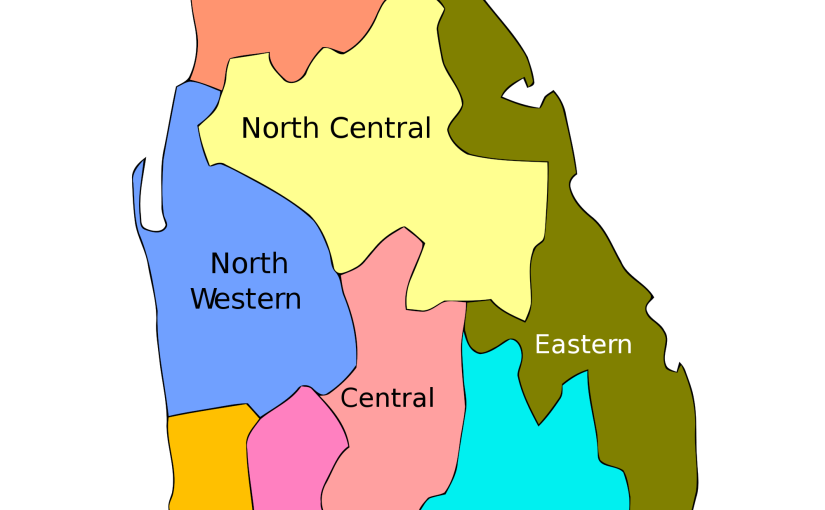
A Comparative Analysis by Manjula Gajanayake
Outreach Unit
Centre For Policy Alternatives

Conservation of electricity

Determination of standard salary scales for professionally qualified personnel in public corporations and statutory boards

The reform of the administrative structure and procedures

Foreign scholar ships, seminars overseas visits for relating to public administration and management

Families Appeal to his excellency the president for relief

Casual leave for observances on Adi Amawasai

Leave to Muslim employees of public corporations – 13th August, 1980

Strike July 1980 – Vacation of post

Strike July 1980 – Withdrawal of facilities allowed to Trade Unions

Strike July 1980 – Filling of Vacancies

Payment of salary to officers who vacated posts on 18.07.1980

Drunkenness or smelling of liquor

Information to District Ministries

Necessity for local authorities to be vigilant in the matter of sanitation

Establishing Typing Pools

Appointment of women to advisory and ad ministry bodies and delegations

Duty Hours

Let us dedicate ourselves to the Noble Task of further strengthening the Freedom and Democracy within Sri Lanka

Duty Hours and Leave of Public Officers

Implementation of the official language policy
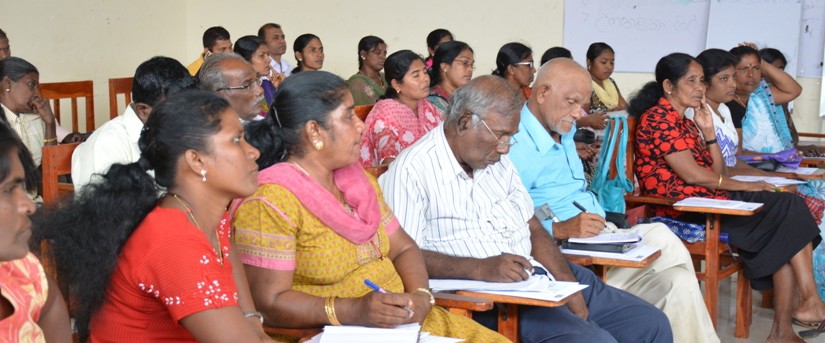
The following suggestions were
proposed by citizens from many
Districts across Sri Lanka, during
awareness sessions conducted by the
CICC
So far, the CICC has conducted awareness sessions in
Mullativu, Kilinochchi, Vavuniya, Jaffna, Mannar,
Anuradhapura, Polonnaruwa, Dambulla, Matara,
Galle, Ampara, Batticaloa, Tangalle, Kandy,
NuwaraEliya, Kurunegala, Colombo, Matale, and
Ratnapura.

The goal of the Initiative is simple: spread the message that the
government is asking for public submissions for the new Constitution
throughout Sri Lanka, and encourage as many citizens to submit their
opinions.
This report is a compilation of many recommendations that came into the
Citizens Initiative. The aim of this is to provide a reflection of a cross section
of Sri Lanka’s society; their needs, their burdens, and their hopes for a
better Sri Lanka. This can be used as a guiding document to build your
recommendations on.
We trust that this information will assist you in formulating your
submissions for the new Constitution.
By A PUBLIC PERSPECTIVE
AN ACT TO AMEND THE CONSTITUTION OF THE DEMOCRATIC
SOCIALIST REPUBLIC OF SRI LANKA (19)

SRI LANKA STANDARDS INSTITUTION
SPECIMEN APPLICATION FORM FOR TRAINING PROGRAMME
SRI LANKA STANDARDS INSTITUION
SRI LANKA STANDARDS INSTITUTION
NOTIFICATION FORM – IMPORT INSPECTION SCHEME
SRI LANKA STANDARDS INSTITUTION
Subscribing Membership Scheme
Application Form
SRI LANKA STANDARDS INSTITUTION
Individual Membership Scheme
SRI LANKA STANDARDS INSTITUTION
APPLICATION FORM FOR DIPLOMA IN QUALITY MANAGEMENT /FOOD QUALITY MANAGEMENT
Sri Lanka Standards Institution (SLSI)
National institute of Labour Studies
Application for Participation in a HRD Project
Sri Lanka Savings Bank
Sri Lanka Savings Bank
JOINT ACCOUNT DETAILS (opening form)
(SOCIETIES, CLUBS & ASSOCIATIONS) Sri Lanka Savings Bank
SRI LANKA SAVINGS BANK LTD
APPLICATION FOR LEASE FACILITY – INDIVIDUAL / JOINT
Sri Lanka Savings Bank
Application For Renewal Of Driving Licence
Application For Death Certificate and,or Search Of Registers
Application For birth Certificate and,or Search Of Registers
TENDER FOR THE IMPORT & SUPPLY OF SAWN TIMBER
Tertiary and Vocational Education Commission
TERTIARY AND VOCATIONAL EDUCATION COMMISSION
Application for Renewal of Registration of a Training Institute
Registration of Institutes Providing Tertiary and Vocational Education and Training
APPLICATION FOR ACCREDITATION OF TRAINING PROGRAM/COURSE
TERTIARY AND VOCATIONAL EDUCATION COMMISSION
Sri Lanka Bureau of Foreign Employment First Approvals
TOP CA CASE STUDY EXAMINATION APPLICATION
APPLICATION TIERA-D (Treasury Investment Rupee Account -Dheshabhimani
Application For Purchase of Treasury Bills BOC Bank
BOC Bank Standing Order Application
Application for BOC PAYMATE mobile payment facility
IRREVOCABLE DOCUMENTARY CREDIT APPLICATION
APPLICATION FOR ACCOUNTS TO BE LINKED TO ( BOC E BANK /BOC I NET )
Internet Banking Password Request Form
APPLICATION FOR BOC INTERNET BANKING FACILITY
BOC Bank AGREEMENT GOVERNING THE USE OF BoCiNET
BOC Bank APPLICATION FOR BOC DEBIT CARD
BOC Bank Debenture application
BOC Bank APPLICATION FOR BOC INTERNET BANKING FACILITY
Application For Purchase of Treasury Bond
BOC Bank Credit card application
Application for joint account
BOC Bank 3G SAVINGS
Disability Claim Under The Pension And Social Security Benefit Scheme For The Self- Employed Persons Sri Lanka Social Security Board.
lndustrial Development Board Information Cell
EMPLOYEES’ TRUST FUND BOARD
Application for Reimbursement of Expenses under “Shramasuwa
Rekawarana” Hospitalization medical Insurance Scheme
MINISTRY OF FINANCE AND PLAN IMPLEMENTATION
EMPLOYEES’ TRUST FUND BOARD
SELF-EMPLOYMENT MEMBER APPLICATION
EMPLOYEES’ TRUST FUND BOARD
Application for permanent Disability Insurance Cover
MINISTRY OF FINANCE AND PLAN IMPLEMENTATION
EMPLOYEES’ TRUST FUND BOARD
APPLICATION FOR MEMBERSHIP
“Form. M.W.A.” – To be used by Migrant Workers only
EMPLOYEES’ TRUST FUND BOARD
Application for Kidney Transplant Surgery Assistance
EMPLOYEES’ TRUST FUND BOARD
Application for Re-imbursement of Cost of
Intra – ocular Lens
EMPLOYEES’ TRUST FUND BOARD
Application for Heart Surgery Assistance
APPLICATION FOR A FINANCIAL GRANT OF RS.12,000/- TO THE CHILDREN OF ETF MEMBERS WHO HAVE PASSED THE GCE [A/L] EXAMINATION – 2011 WITH HIGH MARKS
EMPLOYEES’ TRUST FUND BOARD
(ESTABLISHED BY EMPLOYEES’ TRUST FUND ACT NO. 46 OF 1980)
Letter of Indemnity
IF THE EMPLOYER HAS NOT CERTIFIED PART II OF THE
CLAIM APPLICATION THIS FORM SHOULD BE COMPLETED
AND SUBMITTED ALONG WITH FORM VI
REPORT FORWARDED BY THE GRAMA NILADHARI /
DIVISIONAL SECRETARY / SUPERINTENDENT OF THE ESTATE ON
BEHALF OF A DECEASED MEMBER
CLAIM APPLICATION FORM
REGISTRATION OF BOI ENTERPRISES APPROVED UNDER SECTION 17 OF THE BOI LAW
WITH THE INVESTOR SERVICES DEPARTMENT
APPLICATION FOR THE SALE OF FINISHED PRODUCTS IN THE LOCAL MARKET
Guide lines for Indirect Imports (GRN) from TIEP scheme.
(w. e. f. 07.12.2009)
Form 12 Registration for VAT Deferment Blank App P1-P5
RE-EXPORTS OF GOODS, WARES & MERCHANDISE
TO BE SUBMITTED IN QUADRUPLICATE
PART 1 : Sec(1) – GAZETTE EXTRAORDINARY OF THE DEMOCRATIC SOCIALIST REPUBLC OF SRI LANKA – 11.11.1998
Form 08 Certificate of Origin (COO) Blank App P1
BOARD OF INVESTMENT OF SRI LANKA
BOARD OF INVES OF SRI LANKA TMENT
SRI LANKA CUSTOMS – GOODS DECLARATION
Application form for the Employment Opportunities
existing in BOI enterprises in
Export Processing Zones and Out side Zones
Employment Data Bank – Zonal Employment Service Units – Board of Investment of Sri Lanka
Application form for the Employment Opportunities
existing in BOI enterprises in
Export Processing Zones and Out side Zones
Employment Data Bank – Zonal Employment Service Units – Board of Investment of Sri Lanka
Form 03 Private Land Bank Blank App P1-P2
APPLICATION FOR APPROVAL OF AN
INVESTMENT
APPLICATION FOR APPROVAL OF AN
INVESTMENT
Preliminary Planning Clearance for Hotel Projects Form
Preliminary Planning Clearance Application
SHIPBOARD WASTE RECEPTION SERVICE OF THE MEPA
APPLICATION TO REGISTER AS A SERVICE PROVIDER FOR THE YEAR 2010
Consumer Affairs Authority
Application for The Registration Of Consumer Organisation
Under Section 9(b) Of Consumer Affairs Authority Act No.09
Of 2003
CIVIL AVIATION AUTHORITY OF SRI LANKA
APPLICATION FOR CONVERSION OF FOREIGN LICENCES TECHNICAL EXAMINATION
CIVIL AVIATION AUTHORITY OF SRI LANKA
APPLICATION FOR A GROUND INSTRUCTOR LICENCE
CIVIL AVIATION AUTHORITY OF SRI LANKA
APPLICATION FOR A COMMERCIAL PILOT LICENCE
(AEROPLANES/HELICOPTERS)
– MONDAY, DECEMBER 23, 2013
– WEDNESDAY, DECEMBER 11, 2013
— FRIDAY SEPTEMBER 07, 2012
– TUESDAY AUGUST 28, 2012
– TUESDAY, FEBRUARY 14, 2012
– FRIDAY, NOVEMBER 25, 2011
– WEDNESDAY MARCH 16, 2011
– WEDNESDAY, DECEMBER 09, 2009
– THURSDAY, SEPTEMBER 24, 2009
– TUESDAY, OCTOBER 28, 2008
– FRIDAY, AUGUST 24, 2007
— THURSDAY, SEPTEMBER 14, 2006
– MONDAY, AUGUST 14, 2006
– MONDAY NOVEMBER 14, 2005
– FRIDAY, DECEMBER 24, 2004
– FRIDAY, JANUARY 06, 2006
MONDAY, MARCH 13, 2006
– MONDAY, FEBRUARY 14, 2005
– FRIDAY, OCTOBER 01, 2010
– FRIDAY, SEPTEMBER 10, 2010
No. 1372/23 – FRIDAY, DECEMBER 24, 2004
– WEDNESDAY, OCTOBER 22, 2014
– TUESDAY, AUGUST 26, 2008
– FRIDAY, AUGUST 24, 2007
MONDAY, AUGUST 14, 2006
FRIDAY,
JANUARY 28, 2005
TUESDAY MARCH 01, 2011
FRIDAY, SEPTEMBER 10, 2010
AN ACT TO PROVIDE FOR THE ESTABLISHMENT OF A WATER
RESOURCES BOARD, AND TO MAKE PROVISION FOR MATTERS
CONNECTED THEREWITH OR INCIDENTAL THERETO.
AN ACT TO AMEND THE WATER RESOURCES BOARD
ACT, NO. 29 OF 1964
AN ORDINANCE TO MAKE PROVISION TO PREVENT THE
INTRODUCTION INTO, AND DISSEMINATION IN, SRI LANKA OF
THE PLANT KNOWN AS THE WATER HYACINTH.
A LAW TO PROVIDE FOR THE ESTABLISHMENT OF A PUBLIC
AUTHORITY KNOWN AS THE NATIONAL WATER SUPPLY AND
DRAINAGE BOARD, AND FOR MATTERS CONNECTED
THEREWITH OR INCIDENTAL THERETO.
AN ACT TO AMEND THE NATIONAL WATER SUPPLY AND
DRAINAGE BOARD LAW, NO. 2 OF 1974
AN ORDINANCE TO AMEND AND CONSOLIDATE THE LAW
RELATING TO IRRIGATION.
AN ACT TO AMEND THE IRRIGATION ORDINANCE
Irrigation (Amendment) Act No 23 of 1983
AN ACT TO AMEND AND IRRIGATION ORDINANCE
AN ACT TO PROVIDE FOR THE ESTABLISHMENT OF A FUND CALLED
“THE UNESCO SCHOLARSHIP FUND” FOR THE ADVANCEMENT
OF EDUCATION OF DISABLED AND DISPLACED CHILDREN BY THE
AWARD OF SCHOLARSHIPS ; AND TO PROVIDE FOR MATTERS
CONNECTED THEREAWITH OR INCIDENTAL THERETO.
AN ACT TO ESTABLISH A FOUNDATION CALLED THE SIGIRIYA
HERITAGE FOUNDATION TO PRESERVE AND PROMOTE THE
CULTURAL AND ARCHAEOLOGICAL HERITAGE OF SIGIRIYA
WORLD HERITAGE SITE AND ITS ENVIRONS; AND TO PROVIDE
FOR MATTERS CONNECTED THEREWITH OR INCIDENTAL
THERETO.
AN ACT TO REGULATE THE QUALITY OF SEED AND PLANTING
MATERIALS; AND TO PROVIDE FOR MATTERS CONNECTED
THEREWITH OR INCIDENTAL THERETO
AN ACT TO PROVIDE FOR THE PREVENTION OF MOSQUITO BREEDING ; FOR
THE ERADICATION OF PLACES OF MOSQUITO BREEDING AND FOR
MATTERS CONNECTED THEREWITH OR INCIDENTAL THERETO.
AN ACT TO PROVIDE FOR THE EXPLORATION AND RECOVERY OF
PETROLEUM RESOURCES IN SRI LANKA AND FOR THE REGULATION
OF THE SAME ; TO REPEAL CERTAIN PROVISIONS OF THE CEYLON
PETROLEUM CORPORATION, ACT, NO. 28 OF 1961 ; AND TO PROVIDE
FOR MATTERS CONNECTED THEREWITH OR INCIDENTAL THERETO.
AN ACT TO PROVIDE FOR AN ALTERNATE PROCEDURE FOR THE IMPORT,
EXPORT, SALE, SUPPLY AND DISTRIBUTION OF PETROLEUM ; TO
VEST CERTAIN POWERS IN THE ENERGY SUPPLY COMMITTEE ; AND
TO PROVIDE FOR MATTERS CONNECTED THEREWITH OR INCIDENTAL
THERETO
AN ACT TO PROVIDE FOR THE REGULATION AND CONTROL OF
THE DISTRIBUTION AND USE OF PETROLEUM PRODUCTS WITH
A VIEW TO ENSURING THE FAIR DISTRIBUTION OF SUCH
PRODUCTS, AND TO THE CONSERVATION OF SUPPLIES
THEREOF; AND TO PROVIDE FOR MATTERS CONNECTED
THEREWITH OR INCIDENTAL THERETO
AN ORDINANCE TO REGULATE THE IMPORTATION,
POSSESSION, TRANSPORT, AND HAWKING OF PETROLEUM
AND OTHER FLUIDS OF A LIKE NATURE.
Natural resources , Energy and Science Authority of Sri Lanka Act, No 78 of 1981
National Environmental Act No 47 of 1980
AN ACT TO AMEND THE NATIONAL ENVIRONMENTAL ACT, No.
47 or 1980.
AN ACT TO AMEND THE NATIONAL ENVIRONMENTAL ACT, No.
47 OF 1980.
A LAW TO PROVIDE FOR THE DECLARATION OF THE
TERRITORIAL SEA AND OTHER MARITIME ZONES OF SRI
LANKA, AND ALL OTHER MATTERS CONNECTED THEREWITH
OR INCIDENTAL THERETO
Marine Pollution Prevention Act, No 59 of 1981
AN ACT TO PROVIDE FOR THE ESTABLISHMENT OF A DEPARTMENT OF
COAST GUARD; TO SPECIFY THE FUNCTIONS OF THE DEPARTMENT OF
COAST GUARD; AND TO PROVIDE FOR MATTERS CONNECTED THEREWITH
OR INCIDENTAL THERETO.
AN ACT TO MAKE PROVISION FOR A SURVEY OF THE COASTAL ZONE AND
THE PREPARATION OF A COASTAL ZONE MANAGEMENT PLAN ; TO
REGULATE AND CONTROL DEVELOPMENT ACTIVITIES WITHIN THE
COASTAL ZONE ; TO MAKE PROVISION FOR THE FORMULATION AND
EXECUTION OF SCHEMES OF WORK FOR COAST CONSERVATION WITHIN
THE COASTAL ZONE ; TO MAKE CONSEQUENTIAL AMENDMENTS TO
CERTAIN WRITTEN LAWS ; AND TO PROVIDE FOR MATTERS CONNECTED
THEREWITH OR INCIDENTAL THERETO.
AN ACT TO AMEND THE COAST CONSERVATION ACT, NO. 57 OF 1981;
TO AMEND CERTAIN PROVISIONS OF THE SRI LANKA LAND
RECLAMATION AND DEVELOPMENT CORPORATION ACT, NO. 15 OF
1968 AND THE BOARD OF INVESTMENT SRI LANKA LAW, NO. 4 OF
1978; AND TO PROVIDE FOR MATTERS CONNECTED THEREWITH OR
INCIDENTAL THERETO.
AN ACT TO AMEND THE COAST CONSERVATION ACT, NO. 57 OF 1981
AN ORDINANCE TO CONSOLIDATE AND AMEND THE LAW
RELATING TO THE CONSERVATION , PROTECTION AND
MANAGEMENT OF FOREST AND FOREST RESOURCES FOR THE
CONTROL OF FELLING AND TRANSPORT OF TIMBER AND
FOREST AND FOR MATTERS CONNECTED THEREWITH OR
INCIDENTAL THERETO.
AN ACT TO AMEND THE FOREST ORDINANCE
AN ACT TO AMEND THE FOREST ORDINANCE
AN ACT TO AMEND THE FOREST ORDINANCE
AN ACT TO AMEND THE FOREST ORDINANCE.
AN ACT TO PROVIDE FOR THE PROHIBITION, REGULATION OR
CONTROL OF THE FELLING OF TREES.
AN ACT TO AMEND THE FELLING OF TREES (CONTROL) ACT
AN ORDINANCE TO PROVIDE FOR THE PROTECTION,
CONSERVATION AND PRESERVATION OF THE FAUNA AND
FLORA OF SRI LANKA; FOR THE PREVENTION OF THE
COMMERCIAL EXPLOITATION OF SUCH FAUNA AND FLORA ;
AND TO PROVIDE FOR MATTERS CONNECTED THEREWITH OR
INCIDENTAL THERETO
FAUNA AND FLORA PROTECTION (AMENDMENT) ACT, No. 49 OF 1993
AN ACT TO AMEND THE FAUNA AND FLORA
PROTECTION ORDINANCE
PEARL FISHERIES
Repealed and Replaced by Fisheries and Aquatic Resource Act, No. 2 of
1996. The following Chapter Contents are prior to repeal.
AN ORDINANCE TO AMEND AND CONSOLIDATE THE LAW
RELATING TO THE PEARL FISHERIES OF SRI LANKA.
AN ACT TO AMEND THE: FISHERIES AND AQUATIC RESOURCES ACT, No. 2
of 1996
)
AN ACT TO AMEND THE FISHERIES AND AQUATIC RESOURCES
ACT. NO. 2 OF 1996
AN ACT TO AMEND THE FISHERIES AND AQUATIC RESOURCES
ACT, NO. 2 OF 1996
AS ACT TO PROVIDE FOR THE MANAGEMENT. REGULATION,
CONSERVATION AND DEVELOPMENT OF FISHERIES AND AQUATIC
RESOURCES IN SRI LANKA; TO REPEAL THE FISHERIES ORDINANCE
(CHAPTER 212), THE CHANK FISHERIES ACT (CHAPTER 213), THE PEARL
FISHERIES ORDINANCE (CHAPTER 214) AND THE WHALING ORDINANCE
(CHAPTER 215) ; AND TO PROVIDE FOR MATTERS CONNECTED THERE
WITH OR INCIDENTAL. THERETO
AN ACT TO AMEND THE FISHERIES AND AQUATIC RESOURCES
ACT, NO. 2 OF 1996
AN ACT TO AMEND THE FISHERIES AND AQUATIC RESOURCES
ACT, NO. 2 OF 1996
AN ACT TO REGULATE. CONTROL AND MANAGE FISHING AND
RELATED ACTIVITIES BY FOREIGN BOATS IN SRI LANKA
WATERS; AND TO PROVIDE FOR MATTERS CONNECTED
THEREWITH OR INCIDENTAL THERETO
AN ACT TO AMEND THE FISHERIES (REGULATION OF FOREIGN
FISHING BOATS) ACT
AN ACT TO AMEND THE FISHERIES ORDINANCE
AN ACT TO REGULATE THE SALE OF FERTILIZERS OF THE SOIL
AND TO PROVIDE AGAINST THE ADULTERATION THEREOF
AND TO REPEAL THE FERTILIZERS ORDINANCE.
AN ORDINANCE TO AMEND THE LAW RELATING TO
BUTCHERS AND THE SLAUGHTER OF CATTLE AND TO
PROVIDE FOR THE ESTABLISHMENT OF PUBLIC
SLAUGHTERHOUSES
AN ACT TO AMEND THE BUTCHERS ORDINANCE
AN ACT TO REGULATE THE SLAUGHTER OF ANIMALS; TO
ENABLE THE RESTRICTION, CONTROL OR REGULATION OF
THE REMOVAL OF ANIMALS FROM ONE ADMINISTRATIVE
DISTRICT TO ANOTHER; TO MAKE PROVISION FOR THE
BRANDING OF ANIMALS AND FOR THE ISSUE OF VOUCHERS IN
RESPECT OF ANIMALS WHICH HAVE BEEN BRANDED AND TO
REGULATE THE SALE AND TRANSFER OF SUCH ANIMALS; TO
PROVIDE FOR THE SEIZURE AND DETENTION OF ANIMALS
WHICH COMMIT TRESPASS AND FOR THE ASSESSMENT AND
RECOVERY OF DAMAGES FOR SUCH TRESPASS ; TO PROVIDE
FOR MEASURES FOR THE IMPROVEMENT OF THE BREED OF
ANIMALS; AND TO PROVIDE FOR MATTERS CONNECTED
THEREWITH OR INCIDENTAL THERETO
AN ACT TO AMEND THE ANIMALS ACT, NO. 29 OF 1958
AN ACT TO AMEND THE ANIMALS ACT, NO. 29 OF 1958
AN ACT TO REGULATE, SUPERVISE AND CONTROL THE
MANUFACTURE SALE AND DISTRIBUTION OF ANIMAL FEED
AND TO PROVIDE FOR MATTERS CONNECTED THEREWITH OR
INCIDENTAL THERETO.
Animal Diseases Act, No 59 of 1992
AN ACT TO PROVIDE FOR THE ESTABLISHMENT OF A
CORPORATION OR CORPORATIONS FOR THE PLANNING, COORDINATION
AND DEVELOPMENT OF AGRICULTURAL
UNDERTAKINGS, TO REGULATE THE POWERS AND DUTIES OF
SUCH CORPORATION OR CORPORATIONS AND TO MAKE
PROVISION FOR MATTERS CONNECTED THEREWITH OR
INCIDENTAL THERETO
State Agricultural Corporations ( Amendment) Act, No 20 of 1980
AN ORDINANCE TO AMEND AND CONSOLIDATE THE LAW
RELATING TO POISONS,OPIUM, AND DANGEROUS DRUGS.
AN ACT TO Amend the Poisons, Opium, and Dangerous Drugs
Ordinance
AN ACT TO AMEND THE POISONS, OPIUM AND DANGEROUS
DRUGS ORDINANCE
AN ACT TO PROVIDE FOR THE PROHIBITION OF THE
IMPORTATION, MANUFACTURE, POSSESSION, SALE, EXPOSURE
FOR SALE, ACQUISITION, TRANSPORT, USE OR SUPPLY OF,
AND OF THE DOING OF CERTAIN OTHER ACTS OR THINGS
WITH, OFFENSIVE WEAPONS
AN ACT TO AMEND THE OFFENSIVE WEAPONS
ACT, NO. 18 OF 1966
AN ORDINANCE TO AMEND THE LAW RELATING TO
FIREARMS.
AN ACT TO AMEND THE FIREARMS ORDINANCE
AN ACT TO AMEND THE FlREARMS ORDINANCE
AN ACT TO CONTROL, AND TO ENABLE THE PROHIBITION OF,
THE MANUFACTURE, IMPORTATION, EXPORTATION,
POSSESSION, SALE, EXPOSURE FOR SALE, SUPPLY, PURCHASE,
USE AND TRANSPORT OF ANY EXPLOSIVES, AND TO REPEAL
THE EXPLOSIVES ORDINANCE.
AN ACT TO AMEND THE EXPLOSIVES ACT
AN ORDINANCE TO PROHIBIT THE CARRYING OF DANGEROUS
KNIVES.
AN ACT TO PROVIDE FOR THE ESTABLISHMENT AND
CONSTITUTION OF A SYSTEM OF COURTS OF FIRST INSTANCE
IN TERMS OF ARTICLE 105 (1) OF THE CONSTITUTION, TO
DEFINE THE JURISDICTION OF AND TO REGULATE THE
PROCEDURE IN AND BEFORE SUCH COURTS/AND TO PROVIDE
FOR MATTERS CONNECTED WITH OR INCIDENTAL TO THE
MATTERS AFORESAID.
Judicature (Amendment) Act No 71 of 1981
AN ACT TO AMEND THE JUDICATURE ACT, No.2 OF 1978.
Judicature (Amendment) Act No 36 of 1983
AN ACT TO AMEND THE JUDICATURE ACT, NO. 2 OF 1978
AN ACT TO AMEND THS JUDICATURE (AMENDMENT) ACT, No.
16 OF 1989.
Judicature (Amendment) Act No 27of 1998
AN ACT TO AMEND THE JUDICATURE ACT, NO. 2 OF 1978
AN ACT TO AMEND THE JUDICATURE ACT, NO. 2 OF 1978
AN ACT TO AMEND THE JUDICATURE ACT, NO.2 OF 1978
AN ACT TO REGULATE THE PROCEDURE IN PRIMARY COURTS
AND TO MAKE PROVISION FOR CONNECTED MATTERS.
AN ORDINANCE TO MAKE PROVISION FOR THE
ESTABLISHMENT OF URBAN COUNCILS FOR THE PURPOSES OF
LOCAL GOVERNMENT IN SRI LANKA
AN ACT TO AMEND THE URBAN COUNCILS ORDINANCE
(CHAPTER 255)
AN ACT TO AMEND THE URBAN COUNCILS ORDINANCE
AN ACT TO AMEND THE URBAN COUNCILS ORDINANCE
AN ACT TO AMEND THE PRADESHIYA SABHA ACT, NO. 15 OF 1987
AN ACT TO AMEND THE PRADESHIYA SABHAS ACT, NO. 15 OF
1987
AN ACT TO AMEND THE PRADESHIYA SABHAS ACT,
NO. 15 OF 1987
AN ORDINANCE TO PROVIDE FOR THE SUPERVISION OF
MUNICIPAL DAIRIES AND LAUNDRIES.
AN ACT TO AMEND THE MUNICIPAL COUNCILS ORDINANCE.
AN ACT TO AMEND THE MUNICIPAL COUNCILS ORDINANCE
AND THE URBAN COUNCILS ORDINANCE.
AN ACT TO AMEND THE MUNICIPAL COUNCILS ORDINANCE
AND THE URBAN COUNCILS ORDINANCE
AN ACT TO AMEND THE MUNICIPAL COUNCILS ORDINANCE
AND THE URBAN COUNCILS ORDINANCE
Municipal Councils and Urban Councils (Amendment) Act No 10 of 1981
Municipal Councils and Urban Councils (Amendment) Act No 5 of 1983
AN ACT TO AMEND THE MUNICIPAL COUNCILS ORDINANCE
AN ACT TO AMEND THE MUNICIPAL COUNCILS ORDINANCE
(CHAPTER 252)
AN ACT TO AMEND THE MUNICIPAL COUNCILS ORDINANCE
AN ACT TO AMEND THE MUNICIPAL COUNCILS ORDINANCE
AN ACT TO PROVIDE FOR THE ESTABLISHMENT OF PRADESHIYA
SABHAS WITH A VIEW TO PROVIDE GREATER OPPORTUNITIES
FOR THE PEOPLE TO PARTICIPATE EFFECTIVELY IN DECISIONMAKING
PROCESS RELATING TO ADMINISTRATIVE AND
DEVELOPMENT ACTIVITIES AT A LOCAL LEVEL; TO SPECIFY THE
POWERS, FUNCTIONS AND DUTIES OF SUCH SABHAS; AND TO
PROVIDE FOR MATTERS CONNECTED THEREWITH OR
INCIDENTAL THERETO.
AN ACT TO PROVIDE FOR THE ESTABLISHMENT OF MEDIATION BOARDS
IN ARMS TO BE SPECIFIED BY THE MINISTER; TO DEFINE THE POWERS
AND DUTIES OF SUCH BOARDS, AND TO MAKE PROVISION FOR MATTERS
CONNECTED THEREWITH OK
AN ACT TO AMEND THE MEDIATION BOARDS ACT, No. 72 OF
1988.
AN ACT TO AMEND THE MEDIATION BOARDS ACT, NO. 72 OF 1988
AN ACT TO PROVIDE FOR THE ESTABLISHMENT OF MEDIATION
BOARDS FOR SETTLEMENT THROUGH MEDIATION OF SPECIAL
CATEGORIES OF DISPUTES; AND FOR MATTERS CONNECTED
THEREWITH AND INCIDENTAL THERETO.
AN ORDINANCE FOR THE REGULATION OF THE WAGES AND
OTHER EMOLUMENTS OF PERSONS EMPLOYED IN TRADES,
FOR THE ESTABLISHMENT AND CONSTITUTION OF WAGES
BOARDS, AND FOR OTHER PURPOSES CONNECTED WITH OR
INCIDENTAL TO THE MATTERS AFORESAID.
AN ACT TO MAKE SPECIAL PROVISIONS IN RESPECT OF THE
TERMINATION OF THE SERVICES OF WORKMEN IN CERTAIN
EMPLOYMENTS BY THEIR EMPLOYERS.
AN ACT TO AMEND THE TERMINATION OF EMPLOYMENT OF
WORKMEN (SPECIAL PROVISIONS) ACT, NO. 45 OF 1971
AN ACT TO AMEND THE TERMINATION OF EMPLOYMENT OF
WORKMEN (SPECIAL PROVISIONS) ACT, NO. 45 OF 1971
AN ACT TO PROVIDE FOR THE REGULATION OF EMPLOYMENT,
HOURS OF WORK AND REMUNERATION OF PERSONS IN SHOPS
AND OFFICES, AND FOR MATTERS CONNECTED THEREWITH
OF INCIDENTAL THERETO
AN ORDINANCE TO CONSTITUTE THE OFFICE OF PUBLIC
TRUSTEE AND TO PROVIDE FOR THE APPOINTMENT OF A
PUBLIC TRUSTEE, AND TO AMEND THE LAW RELATING TO
THE ADMINISTRATION OF TRUSTS.
AN ACT TO AMEND THE PUBLIC TRUSTEE ORDINANCE
Public Trustee (Amendment) Act, No 41 of 1983
AN ORDINANCE TO MAKE PROVISION FOR THE
ESTABLISHMENT OF A PROVIDENT FUND, FOR THE GRANT
THEREFROM OF BENEFITS TO CERTAIN NON-PENSIONABLE
EMPLOYEES OF THE GOVERNMENT, AND FOR OTHER
MATTERS INCIDENTAL TO OR CONNECTED WITH THE
PURPOSES AFORESAID
AN ACT TO AMEND THE PUBLIC SERVICE PROVIDENT FUND
ORDINANCE
AN ACT TO AMEND THE PUBLIC SERVICE PROVIDENT FUND
ORDINANCE
AN ACT TO PROVIDE FOR ESTABLISHMENT OF A TRUST FUND
CALLED THE PUBLIC SERVICE PENSIONERS’ TRUST FUND ; TO
SPECIFY ITS OBJECTS AND POWERS AND TO PROVIDE FOR MATTERS
CONNECTED THEREWITH OR INCIDENTAL THERETO
AN ORDINANCE TO INCORPORATE THE PUBLIC SERVICE
MUTUAL PROVIDENT ASSOCIATION
AN ACT TO AMEND THE PUBLIC SERVICE MUTUAL PROVIDENT
ASSOCIATION ORDINANCE.
AN ACT TO AMEND THE PUBLIC SERVICE MUTUAL PROVIDENT
ASSOCIATION ORDINANCE.
AN ACT TO AMEND THE PUBLIC SERVICE MUTUAL PROVIDENT
ASSOCIATION ORDINANCE.
AN ACT TO AMEND THE PUBLIC SERVICE MUTUAL PROVIDENT
ASSOCIATION ORDINANCE
AN ORDINANCE TO PROTECT PUBLIC SERVANTS FROM LEGAL
PROCEEDINGS IN RESPECT OF CERTAIN LIABILITIES.
An ACT TO AMEND THE PUBLIC SERVANTS (LIABILITIES)
ORDINANCE
AN ORDINANCE TO MAKE PROVISION FOR THE BETTER
REGULATION OF PUBLIC PERFORMANCES AND CARNIVALS,
AND FOR MATTERS CONNECTED THEREWITH OR INCIDENTAL
THERETO
AN ORDINANCE RELATING TO THE GIVING OF SECURITY BY
PUBLIC OFFICERS IN THE EMPLOYMENT OF THE
GOVERNMENT OF SRI LANKA.
AN ACT TO PROVIDE FOR THE DECLARATION OF SERVICES
PROVIDED BY CERTAIN GOVERNMENT DEPARTMENTS,
PUBLIC CORPORATIONS. LOCAL AUTHORITIES AND COOPERATIVE
SOCIETIES AS ESSENTIAL PUBLIC SERVICES ; AND
FOR MATTERS CONNECTED THEREWITH OR INCIDENTAL
THERETO.
AN ACT TO MAKE PROVISION FOR ENABLING THE CALLING UP
FOR COMPULSORY PUBLIC SERVICE OF PERSONS WHO ARE
GRADUATES OF ANY UNIVERSITY ESTABLISHED OR DEEMED
TO BE ESTABLISHED UNDER THE UNIVERSITIES ACT OR ANY
OTHER UNIVERSITY ESTABLISHED IN SRI LANKA, OR OF ANY
UNIVERSITY OUTSIDE SRI LANKA AND WHO UNDERGO A
COURSE OF TECHNICAL TRAINING IN ANY UNIVERSITY
ESTABLISHED IN SRI LANKA, AND FOR MATTERS CONNECTED
THEREWITH OR INCIDENTAL THERETO.
AN ACT TO PROVIDE FOR THE PREVENTION, INVESTIGATION
AND SETTLEMENT OF INDUSTRIAL DISPUTES, AND
FORMATTERS CONNECTED THEREWITH OR INCIDENTAL
THERETO.
AN ACT TO PROVIDE FOR THE EXPEDITIOUS HEARING AND
DETERMINATION OF APPLICATIONS AND REFERENCES MADE UNDER
THE INDUSTRIAL DISPUTES ACT AND THE TERMINATION OF
EMPLOYMENT OF WORKMEN (SPECIAL PROVISIONS) ACT; TO AMEND
THE INDUSTRIAL DISPUTES ACT AND THE TERMINATION OF
EMPLOYMENT OF WORKMEN (SPECIAL PROVISIONS) ACT, AND FOR
MATTERS CONNECTED THEREWITH OR INCIDENTAL THERETO
AN ACT TO AMEND THE INDUSTRIAL DISPUTES ACT
INDUSTRIAL DISPUTES (AMENDMENT) ACT, No. 32 OF 1990
AN ACT TO AMEND THE INDUSTRIAL DISPUTES ACT
AN ACT TO AMEND THE INDUSTRIAL DISPUTES ACT (CHAPTER 131)
AN ACT TO PROVIDE FOR THE ENCOURAGEMENT, PROMOTION
AND DEVELOPMENT OF INDUSTRIES IN SRI LANKA; TO
ESTABLISH A PUBLIC AUTHORITY KNOWN AS THE
INDUSTRIAL DEVELOPMENT BOARD OF CEYLON; TO SET UP
AN INDUSTRIAL ADVISORY COUNCIL AND INDUSTRIAL
PANELS; TO PROVIDE FOR THE ESTABLISHMENT OF AN
INDUSTRIAL DEVELOPMENT FUND, AND TO MAKE PROVISION
FOR MATTERS CONNECTED THEREWITH OR INCIDENTAL
THERETO
AN ACT TO PROVIDE FOR THE PAYMENT or A GRATUITY BY EMPLOYERS TO THEIR WORKMEN, FOR THE AMENDMENT OF THE LAND ACQUISITION ACT, THE LAND REFORM LAW AND THE INDUSTRIAL DISPUTES ACT, AND FOR MATTERS CONNECTED THEREWITH OR INCIDENTAL THERETO.
Payment of Gratuity (Amendment) Act No 62 of 1992
AN ACT TO AMEND THE PAYMENT OF GRATUTITY ACT, NO. 12 OF 1983
A LAW TO PROVIDE FOR THE PAYMENT OF GRATUITIES AND
OTHER MONETARY BENEFITS TO INDIAN REPATRIATES, AND
TO PROVIDE FOR MATTERS CONNECTED THEREWITH OR
INCIDENTAL THERETO.
Employees’ Trust Fund Act No 46 of 1980
AN ACT TO MAKE THE PROVISIONS OF THE EMPLOYEES TRUST
FUND ACT, NO. 46 OF 1980 APPLICABLE TO EMPLOYEES OF,
THE UNIVERSITY GRANTS COMMISSION AND OF, HIGHER
EDUCATIONAL INSTITUTIONS; TO REPEAL SECTION 79A OF
THE UNIVERSITIES ACT, NO. 16 OF 1978; AND FOR MATTERS
CONNECTED THEREWITH OR INCIDENTAL THERETO.
AN ACT TO AMEND THE EMPLOYEES TRUST FUND ACT. No. 46
OF 1980
AN ACT TO AMEND THE EMPLOYEES’ TRUST FUND ACT, NO. 46
OF 1980
AN ACT TO AMEND THE EMPLOYEES’ TRUST FUND ACT.
EMPLOYEES’ PROVIDENT FUND
AN ACT TO ESTABLISH A PROVIDENT FUND FOR THE BENEFIT
OF CERTAIN CLASSES OF EMPLOYEES AND TO PROVIDE FOR
MATTERS CONNECTED THEREWITH OR INCIDENTAL THERETO.
A LAW TO PROVIDE FOR A UNIFORM SCHEME OF
SUPERANNUATION BENEFITS FOR ALL EMPLOYEES IN THE
PRIVATE SECTOR, AND FOR MATTERS INCIDENTAL THERETO
OR CONNECTED THEREWITH
AN ACT TO AMEND THE EMPLOYEES PROVIDENT FUND ACT, No. 15 OF 1958
AN ACT TO AMEND THE EMPLOYEES’ PROVIDENT FUND ACT, NO. 15 OF
1958.
AN ACT TO AMEND THE EMPLOYEES’ PROVIDENT FUND ACT, No. 15 OF
1958,
AN ACT TO AMEND THE EMPLOYEES’ PROVIDENT FUND ACT, No. 15 OF
1953.
AN ACT TO AMEND THE EMPLOYEES’ PROVIDENT FUND
ACT, NO. 15 OF 1958
AN ACT TO AMEND THE EMPLOYEES’ PROVIDENT FUND
(SPECIAL PROVISIONS) LAW, NO. 6 OF 1975.
AN ACT TO PROVIDE FOR THE GRANT OF SOME OF THE PUBLIC
HOLIDAYS TO CERTAIN CLASSES OF EMPLOYEES AND FOR
MATTERS CONNECTED THEREWITH OR INCIDENTAL THERETO
A REGULATION FOR GIVING FULL FORCE TO THE ”
TESAWALAMAI” OR THE CUSTOMS OF THE MALABAR INHABITANTS
OF THE PROVINCE OF JAFFNA, AS COLLECTED BY
ORDER OF GOVERNOR SIMONS IN 1706.
AN ORDINANCE TO DEFINE THE LAW RELATING TO MUSLIM
INTESTATE SUCCESSION AND DONATIONS
AN ORDINANCE TO AMEND THE LAW RELATING TO THE
MATRIMONIAL RIGHTS OF MARRIED PERSONS WITH REGARD
TO PROPERTY AND THE LAW OF INHERITANCE
AN ORDINANCE TO AMEND AND CONSOLIDATE THE LAW
RELATING TO THE PROPERTY OF MARRIED WOMEN
AN ORDINANCE TO DECLARE THE LAW APPLICABLE TO THE
ISSUE OF CERTAIN KANDYAN MARRIAGES
AN ACT TO AMEND THE RFFIISTBATRON OF PERSONS ACT, NO.
32 OF 1968.
AN ACT TO PROVIDE FOR THE REGISTRATION OF CERTAIN
PERSONS WHO ARE IN SRI LANKA, FOR THE ISSUE OF
IDENTITY CARDS TO THE PERSONS SO REGISTERED, AND FOR
PURPOSES CONNECTED THEREWITH OR INCIDENTAL
THERETO.
AN ACT TO PROVIDE FOR THE PREVENTION OF ANY ACT OF DOMESTIC
VIOLENCE AND FOR MATTERS CONNECTED THEREWITH OR INCIDENTAL
THERETO
AN ORDINANCE TO MAKE PROVISION FOR THE PAYMENT OF
MATERNITY BENEFITS TO WOMEN WORKERS AND FOR OTHER
MATTERS INCIDENTAL TO THE EMPLOYMENT OF SUCH
WOMEN BEFORE AND AFTER THEIR CONFINEMENT
Maternity Benefits (Amendment) Act No 52 of 1981
AN ACT TO AMEND THE MATERNITY BENEFITS ORDINANCE.
Marriage and Divorce (Muslim)
Muslim Marriage and Divorce (Amendment) Act, No. 40 of 2006
Muslim Marriage and Divorce (Amendment) Act, No. 24 of 2013
AN ORDINANCE TO CONSOLIDATE AND AMEND THE LAW
RELATING TO MARRIAGES OTHER THAN THE MARRIAGES OF
MUSLIMS AND TO PROVIDE FOR THE BETTER REGISTRATION
THEREOF.
AN ACT TO AMEND THE MARRIAGE REGISTRATION ORDINANCE
(CHAPTER 112)
AN ACT TO AMEND THE MARRIAGE REGISTRATION ORDINANCE
(CHAPTER 112)
AN ACT TO AMEND THE MARRIAGE REGISTRATION
ORDINANCE
Marriage Registration (Amendment) Act, No.11 of 2001
Marriage Registration (Amendment) Act, No.11 of 2001
AN ACT TO AMEND AND CONSOLIDATE THE LAW RELATING
TO KANDYAN MARRIAGES AND DIVORCES, AND TO MAKE
PROVISION FOR MATTERS CONNECTED THEREWITH OR
INCIDENTAL THERETO
Kandyan Marriage and Divorce (Amendment) Act, No. 39 of 2006
Kandyan Marriage And Divorce (Amendment) Act, No. 23 of 2013
AN ACT TO AMEND THE KANDYAN MARRIAGE AND DIVORCE ORDINANCE
Maintenance Claims (Reciprocal Enforcement) Act, No.54 of 198
AN ACT TO PROVIDE FOR THE MAINTENANCE OF CHILDREN, ADULT
OFFSPRING, DISABLED OFFSPRING AND SPOUSES UNABLE TO
MAINTAIN THEMSELVES ; TO ENSURE COMPLIANCE OF THE LAW
RELATING TO MAINTENANCE WITH THE PROVISIONS OF THE
UNITED NATIONS CONVENTION ON THE RIGHTS OF THE CHILD;
AND FOR MATTERS CONNECTED THEREWITH OR INCIDENTAL
THERETO.
AN ACT TO CHANGE THE LAW RELATING TO THE
LEGITIMIZATION OF CERTAIN ILLEGITIMATE CHILDREN.
AN ORDINANCE TO DECLARE AND AMEND THE KANDYAN
LAW IN CERTAIN RESPECTS.
At a Convention held on the Second day of March, in the year of Christ
1815, and the Cingalese year 1736 at the Palace in the city of Kandy,
between Excellency Lieut.General Robert Brownrigg Governor and
Commander-in-Chief in and over the British settlements and territories in
the Island Ceylon, acting in the name and on behalf of Majesty George the
Third, King, and His Royal Highness George, Prince of Wales, Regent, of
United Kingdom of Great Britain and Ireland, on; the one part, and the
Adigars, Dessaves, and other principal chiefs of the Kandy an provinces
on behalf of the inhabitants, and in presence of the” Mohottales, Coraals,
Vidaans, and other subordinate; headmen from the several provinces, and
of the people then and there assembled on the other part,3 it is agreed and
established as follows.
AN ORDINANCE TO REGULATE THE LAW RELATING TO
SENTENCES OF WHIPPING
AN ACT TO REPEAL THE CORPORAL PUNISHMENT ORDINANCE
AN ACT TO PROVIDE FOR THE REGISTRATION OF DEATHS OF PERSONS
REPORTED MISSING AS A RESULT OF TERRORIST OR SUBVERSIVE
ACTIVITY OR CIVIL COMMOTION AND OF PERSONS WHOSE DEATHS ARE
DIRECTLY ATTRIBUTABLE TO ANY NATURAL DISASTER OR CALAMITY
AND SUCH ACTIVITY, DISASTER OR CALAMITY RESULTS IN SERIOUS
CONSEQUENCES AT NATIONAL LEVEL; AND FOR MATTERS CONNECTED
THEREWITH OR INCIDENTAL THERETO.
AN ACT TO PROVIDE FOR THE REGISTRATION OF DEATHS OF
PERSONS REPORTED MISSING ; AND FOR MATTERS
CONNECTED THEREWITH OR INCIDENTAL THERETO
An Act to provide for the registration of deaths of persons
reported missing as a result of terrorist or subversive
activity or civil commotion and of persons whose death is
directly attributable to any natural disaster or calamity
which has seroius consequences at the national level ;
and for matters connected therewith or incidental thereto
As ACT TO PROVIDE FOR THE REGISTRATION OF DEATHS OF
PERSONS REPORTED MISSING; AND FOR MATTERS
CONNECTED THEREWITH OR INCIDENTAL THERETO.
AN ORDINANCE TO MODIFY CERTAIN PROVISIONS OF LAW
RELATING TO THE REGISIRATION OF DEATHS, INQUIRIES INTO
DEATHS AND TO THE BURIAL AND CREMATION OF DEAD
BODIES IN THEIR APPLICATION IN THE CASE OF THE DEATHS
OF PERSONS SUBJECT TO MILITARY LAW OR OF MEMBERS OF
THE ARMED FORCES OF THE ENEMY.
AN ACT TO AMEND THE BIRTHS AND DEATHS REGISTRATION
ACT (CHAPTER 110
AN ACT TO AMEND THE BIRTHS AND DEATHS REGISTRATION ACT
(CHAPTER 110)
AN ACT TO AMEND THE BIRTHS AND DEATHS REGISTRATION
ACT
Antiquities (Amendment) Act, No. 24 of 1998
AN ACT TO AMEND AND CONSOLIDATE THE LAW RELATING
TO THE REGISTRATION OF BIRTHS, DEATHS, AND STILLBIRTHS
AN ACT TO AMEND THE ACE OF MAJORITY ORDINANCE
AN ORDINANCE TO MAKE THE AGE OF EIGHTEEN YEARS THE
LEGAL AGE OF MAJORITY IN SRI LANKA
Adoption of Children (Amendment) Act, No. 15 of 1992
AN ORDINANCE TO PROVIDE FOR THE ADOPTION OF CHILDREN, FOR
THE REGISTRATION AS CUSTODIANS OF PERSONS HAVING THE
CARE, CUSTODY OR CONTROL, OF CHILDREN OF WHOM THEY ARE
NOT THE NATURAL PARENTS, AND FOR MATTERS CONNECTED WITH
THE MATTERS AFORESAID.
AN ACT TO AMEND THE CIVIL PROCEDURE CODE
AN ACT TO AMEND THE CIVIL PROCEDURE CODE
AN ACT TO AMEND THE CIVIL PROCEDURE CODE
AN ACT TO AMEND THE CIVIL PROCEDURE CODE
AN ACT TO AMEND THE CIVIL, PROCEDURE CODE
AN ACT TO AMEND THE CIVIL, PROCEDURE CODE
Civil Procedure Code (Amendment) Act, No. 11 of 2010
AN ACT TO AMEND THE CIVIL PROCEDURE CODE
Civil Procedure Code (Amendment) Act, No. 6 of 1990
Civil Procedure Code (Amendment) Act, No. 4 of 2005
AN ACT TO AMEND THE CIVIL PROCEDURE CODE (AMENDMENT) ACT, NO.
79 OF 198
AN ACT TO AMEND THE CIVIL PROCEDURE CODE
AN ACT TO AMEND THE CIVIL LAW ORDINANCE
AN ORDINANCE TO CONSOLIDATE AND AMEND THE LAW
RELATING TO THE PROCEDURE OF THE CIVIL COURTS
AN ACT TO AMEND THE PENAL CODE
AN ACT TO AMEND THE PENAL CODE
An Act to Amend the penal code
AN ACT TO AMEND THE PENAL CODE
AN ORDINANCE TO PROVIDE A GENERAL PENAL CODE FOR
CEYLON.
AN ACT TO GIVE EFFECT TO THE CONVENTION ON THE SUPPRESSION OF
TERRORIST FINANCING ; AND TO PROVIDE FOR MATTERS CONNECTED
THEREWITH OR INCIDENTAL THERETO.
Civil aspects of international child abduction Act, No. 10 of 2001
AN ACT TO GIVE EFFECT TO THE SAARC CONVENTION ON PREVENTING AND
COMBATING TRAFFICKING IN WOMEN AND CHILDREN FOR PROSTITUTION
AND TO PROVIDE FOR FOR MATTERS CONNECTED THEREWITH OR
INCIDENTAL THERETO
AN ACT TO GIVE EFFECT TO THE CONVENTION AGAINST
TORTURE AND OTHER CRUEL INHUMAN OR DEGRADING
TREATMENT OR PUNISHMENT ; AND FOR MATTERS
CONNECTED THEHEWITH OF INCIDENTAL THERETO.
AN ACT TO AMEND THE CIVIL PROCEDURE CODE
AN ACT TO PROVIDE FOR THE EXTENSION OF THE PERIOD OF DETENTION OF
PERSONS ARRESTED WITHOUT A WARRANT IN ORDER TO FACILITATE THE
CONDUCT OF INVESTIGATIONS; FOR DISPENSING WITH THE CONDUCT OF
THE NON-SUMMARY INQUIRY IN CERTAIN CASES; TO PROVIDE FOR THE
TAKING OF DEPOSITIONS OF WITNESSES FOR THE PROSECUTION; AND TO
MAKE PROVISION FOR MATTERS CONNECTED THEREWITH OR INCIDENTAL
THERETO
2005 අංක 14 දරන අපරාධ නඩු විධාන සංග්රහය (සංශෝධන පනත)
AN ACT TO PROVIDE FOR THE EXTENSION OF THE PERIOD OF DETENTION OF
PERSONS ARRESTED WITHOUT A WARRANT IN ORDER TO FACILITATE THE
CONDUCT OF INVESTIGATIONS; FOR DISPENSING WITH THE CONDUCT OF
THE NON-SUMMARY INQUIRY IN CERTAIN CASES; TO PROVIDE FOR THE
TAKING OF DEPOSITIONS OF WITNESSES FOR THE PROSECUTION; AND TO
MAKE PROVISION FOR MATTERS CONNECTED THEREWITH OR INCIDENTAL
THERETO.
AN ACT TO AMEND THE CODE OF CRIMINAL PROCEDURE
ACT, NO. 15 OF 1979
AN ACT TO AMEND THE CODE OF CRIMINAL PROCEDURE ACT
No. 15 OF 1979.
AN ACT TO AMEND THE CODE OR CRIMINAL PROCEDURE ACT, NO. 15 OF
1979
AN ACT TO AMEND THE CODE OR CRIMINAL PROCEDURE ACT, NO. 15 OF
1979
AN ACT TO AMEND THE CODE OF CRIMINAL PROCEDURE ACT,
NO. 15 OF 1979
AN ACT TO AMEND THE CODE OF CRIMINAL PROCEDURE ACT,
No. 15 OF 1979
AN ACT TO AMEND THE CODE OF CRIMINAL PROCEDURE ACT,
NO. 15 OF 1979
AN ACT TO AMEND THE CODE OF CRIMINAL PROCEDURE ACT,
No. 15 OF 1979
AN ACT TO AMEND THE CODE OF CRIMINAL PROCEDURE ACT,
No. 15 OF 1979
AN ACT TO AMEND THE CODE OF CRIMINAL PROCEDURE ACT,
NO. 15 OF 1979
AN ACT TO AMEND THE CODE OF CRIMINAL PROCEDURE ACT, No. 15 OF
1979
AN ACT TO AMEND THE CODE OF CRIMINAL PROCEDURE
ACT, NO. 15 OF 1979
AN ACT TO AMEND THE CODE OF CRIMINAL PROCEDURE ACT,
NO. 15 OF 1979
AN ACT TO AMEND THE CODE OF CRIMINAL PROCEDURE ACT,
No. 15 OF 1979
AN ACT TO REGULATE THE PROCEDURE OF THE CRIMINAL
COURTS. ( Act No 15 of 1979 )
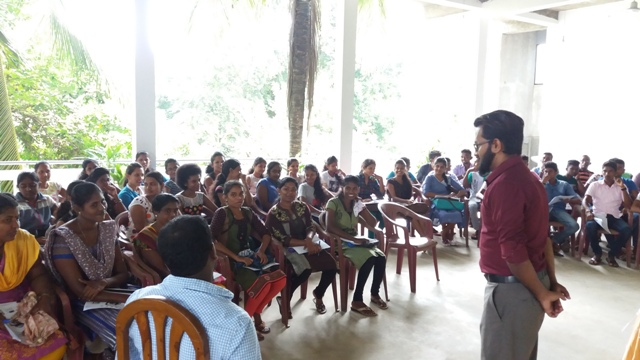
The “Basic Communications Technology for Citizen Activists” is a tri Lingual publication of the CPA, using simple language to introduce grassroots citizen activists to the most popular e-communications and new media platforms including G- Mail, YouTube, and Facebook among others.

The Constitution Of The Democratic Socialist Republic Of Sri Lanka of 1978

By N. Sarasi
A CSO collective called the Citizens’ Initiative for Constitutional Change (CICC) organised a press conference on 12 January in Colombo, to give publicity to the process of collecting citizen input to feed into the government’s current constitution-making exercise.
Speakers at the press conference included Attorney at Law and Chairman of the Public Representation Commission, Lal Wijenayake, Centre for Policy Alternatives (CPA) Executive Director Dr. Paikiasothy Saravanamuttu, PAFFREL Executive Director Rohana Hettiarachchi, Human Rights Activist S.G.Punchihewa, Women and Media Collective Coordinator, Kumudini Samuel, Rights Now Executive Director Attorney-at-law Sudarshana Gunawardana, as well as the Transparency International Senior Manager, Shan Wijetunge. CPA Senior Researcher, in charge of its Outreach Programs, Lionel Guruge chaired the briefing.
Guruge urged the media to give maximum coverage to the process of facilitating citizen participation in constitutional reform and said it was most important that all citizens of the country, Sinhala, Tamil Muslim, young and old, and all minorities are be able to think of it as “Our Constitution.” It was important for detractors and diverse opinions to be given a voice, too, but the process should not be disturbed by them.
CPA Executive Director Dr. Saravanamuttu said that CPA and similar organisations of the CICC had been committed to constitutional reform for over a decade, and it was now a historic and decisive moment to ensure that the country gets the constitution it deserves. Since the political developments of 2015 it remains to bridge the democratic deficit by addressing the areas that require reform, particularly abolishing the executive presidency and devolving executive power among the Cabinet and Parliament, bringing about a new electoral system, and constitutional settlement of the national question which remains at the heart of this country, as a functioning democracy, which accommodates and answers to the grievances and aspirations of all of its people.
Dr. Saravanamuttu gave the example of the constitution making process in South Africa which was inclusive to such an extent that poor villagers were able to voice their concern about their cattle being stolen– leading to a guarantee of the right to private property for citizens, being included in the constitution. “Every citizen should be encouraged to come forward and contribute,” he stressed, adding that the purpose of the Citizens Initiative was to take this awareness as far as possible and make the case for a new constitution, as well as to educate citizens on the structure of the state, the executive and overall framework of the process so that their submissions are focused, direct and deal with the principal concerns of the country. It was important to ensure that as many people as possible participated in this exercise. “This is a chance to be a part of decision making in terms of the supreme law of the land. Proactive participation in the constitution making process will ensure that we are full-fledged citizens in a functioning democracy.”
Media has at times been good at causing controversy, retorting or stirring dissent, but now it has a chance to play a vital and positive role and make a real difference in the future of the country, according to human rights activist, author and Attorney-at-Law S.G. Punchihewa who spoke about specific provisions in the Constitution that had been identified as requiring strengthening. These included the sections on human rights, the five paragraphs on fundamental rights and different aspects of the 13th Amendment.
Punchihewa discussed the requirement to include “Right to life,” in the Constitution. Broader interpretation is required, as in India where this covers air, food, water and environment with recourse. It is important also to strengthen the Human Rights Commission by reinforcing its powers, he stressed. Language equality was another matter which needed to be unconditionally emphasised.
Transparency International Senior Manager Shan Wijetunge opined that “this is the best opportunity, not to be missed, that we have ever had to join together and be part of this historical process, as the current government is only in power for two years. In South Africa, for example, millions of suggestions were received.”
Wijetunge outlined four main categories of provisions that were under discussion, including the reform of the Executive Presidency, fundamental rights, power sharing, and electoral system reform, and said that they were ready to present recommendations to the government including such suggestions as: abolishing the Executive presidency, limiting the cabinet to 25 members, scientific categorisation of ministerial portfolios, having a fixed election calendar, holding LG and PC elections together to save on expenditure, setting a ceiling to the election expenditure on election campaigns.
PAFFREL ED Rohan Hettiarachchi spoke on the much debated subject of electoral reforms, including women’s representation and stressed that a simple election system is needed which does not squander the country’s assets – approximately Rs. 4,000 million of public funds were spent on each election(by the Elections Department alone). Furthermore there should be a system of ensuring that all can vote, e.g. doctors, or prisoners, as was the case in Afghanistan where ‘mobile voting’ is available, although it cannot be said that their democracy was more advanced than in Sri Lanka. He recognised that there was a very small time period to get a lot of work done and said “we must all try our best”.
Strengthen women’s rights
Women and Media Collective Coordinator Kumudini Samuel spoke about the need to strengthen women’s rights through the constitution, and a more effective legal system, with a broader focus being placed on socio economic rights, the right to livelihood, right to housing, food, and health. She also advocated for an Independent Women’s Commission and enforcing political rights for women.
Attorney-at-Law and Chairman of the Public Representation Commission Lal Wijenayake said that CPA and a number of other CSOs have been requesting that the constitution making process is not limited to Parliament but should be with maximum public participation.
“There are mechanisms in place but is there enough time? The people are eager and enthusiastic to engage,” he said, adding that a newspaper advertisement in three languages had been issued on 12 January to invite the participation of the people, to a large scale program from 18 -22 in Colombo at Visumpaya at 9:30 a.m., which was for the purpose of gathering public input. In the rest of the country, the District Secretariats are organising such venues, and are to give notice at least a week prior to the events, although media has a very important role to play in increasing awareness on the exercise.
He said that the questions people asked were “why do we need a (new) constitution?” and “Isn’t the existing one enough?” and he pointed out that in the last few years, people had been on their knees, and Government Servants had been tied to trees, as the existing Constitution was not able to protect them, and even six or seven years after a protracted war, it had not been able to help the people of Sri Lanka reconcile. “My duty now is to listen, rather than speak,” he said in closing.
Rights Now Executive Director Sudarshana Gunewardana said that nation building usually starts after independence but the process of bringing people together as one nation has not been a success in Sri Lanka as evident from both the insurrection in the south by rural youth and the 30 year war in the north which were caused by people not feeling as though they were part of this nation. Finally it was now an opportunity to collect everyone’s views and make a completely new “agreement” that respected the needs of everyone.
A media representative questioned as to how the challenge of language barriers would be overcome in this process and CPA Senior researcher Lionel Guruge assured that every measure would be taken to ensure that required translations would be provided in the field work of the Citizens Initiative, which was making arrangements to provide simplified translated primers.
Further media questions were answered and a CPA publication titled “Why do We Need a Constitution?” was distributed to attendees. This press conference was the latest in a series of events held by CPA bringing awareness to the process of garnering citizen engagement in the current Constitution drafting process.
By pooling in the resources of all organisations involved in the CICC, the Initiative aims to conduct broad scale workshops across the country to raise awareness on the governments’ proceedings with regard to the Constitution process, as well as encourage and identify recommendations of the public for the new Constitution. As the Government declared the establishment of a Public Representation Commission entrusted with the task of compiling public submissions, the CICC at its various workshops will encourage citizens to contribute to this Commission. Parallel to this Initiative, a youth campaign titled ‘My Constitution; A Youth Movement for a New Sri Lankan Constitution’ has also been launched and aims to encourage youth populations to contribute to the new Constitution process. More information about the citizen initiative is available from ciccinitiative@gmail.com or lionel@cpalanka.org.
Taken from – Daily FT e-Paper
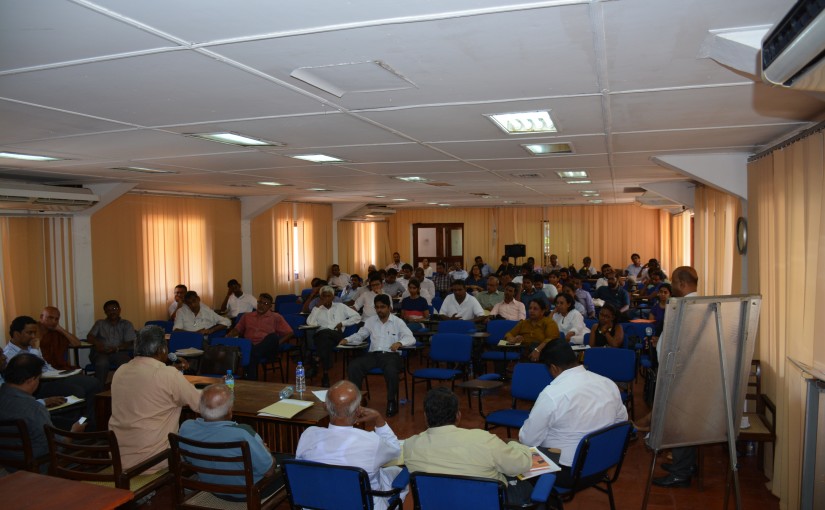
A team of dedicated civil society organization representatives and other stakeholders advocating for the importance of public consultation in the process of promulgating a new Constitution. As the government proceeds with its plan to bring about prolonged change by redressing the issues prevalent in the current Constitution of Sri Lanka, and with the support given to include public submissions in the drafting process, civil society is presented with an opportune moment to ensure that the rights of citizens are safeguarded and represented by the Constitution; the supreme law of the land. With this in mind, a team of civil society organization representatives and other interested civilians conducted a
preliminary meeting in November to discuss the possibility of coalescing to form a movement to advocate for public consultation in the Constitutional reform process. A number of meetings proceeded, and more organizations expressed their interest to enter into this Initiative, which has now resulted in a vast network of civil society advocates determined to ensure that public participation is included in the new Constitution process. One of the main outcomes of the preliminary meeting held on the 25th of November at the Hector Kobbekaduwa Agrarian and Research Institute was the establishment of 2 sub-committees; the ‘Logistics/Steering Committee’ that looks into the logistical aspect of the CICC including which meetings to attend, where to conduct meetings etc. and a ‘Consensus Committee’ that deals with evolving consensus and the fundamental basis of the CICC. Another outcome of the meetings held on the 1st of December 2015 arose from the necessity to educate the populace on the need for a new Constitution as well as the fundamentals prevalent in a Constitution. To address this, a booklet was compiled and published by an editorial team selected from CICC membership and headed by prominent Human Rights activist and Attorney-At-Law S.G. Punchihewa, simplifying what a Constitution must entail and how citizens could contribute to the making of a new Constitution. The book was titled “Why do we need a New Constitution?” and will be made available to the public in Sinhala and Tamil soon.
The overarching goal of the Citizens’ Initiative for Constitutional Change (CICC) is ensuring that the new Constitution upholds its predominant duty of representing the needs of the people by including their suggestions in the Constitution draft document. After careful deliberation, the CICC agreed that public consultation and discussion would revolve around 4 thematic areas;
Following a workshop held on the 22nd of December 2015 organized by Transparency International and the Centre for Policy Alternatives, the CICC expanded on the above four categories and developed its position in relation to the discussion. The core agreement of the CICC is as follows:
Executive control should be transferred from the Presidency to the Cabinet.
As this was a more convoluted topic, a difficulty arose with regard to reaching a specific decision. However, the discussion focused on the following topics.
Although everyone agreed that maximum devolution must occur, the mechanisms of implementation will be further deliberated.
It was proposed to recognize that the judiciary has a prerogative to further human rights to further human rights.
Again, a final decision was difficult to achieve under this topic. Therefore discussion was focused on the following issues.
By pooling in the resources of all organizations involved in the CICC, the Initiative aims to conduct broad scale workshops across the country to raise awareness on the governments’ proceedings with regard to the Constitution process, as well as encourage and identify recommendations of the public for the new Constitution. As the government declared the establishment of a Public Representation Commission entrusted with the task of compiling public submissions, the CICC at its various workshops will encourage citizens to contribute to this Commission. The submissions identified by the CICC will also be compiled into a report that would subsequently be handed over to the Public Representation Commission as well. The various organizations will work in their individual capacities as well as a coalition to further the goal of this Initiative. Parallel to this Initiative, a youth campaign titled ‘My Constitution; A Youth Movement for a New Sri Lankan Constitution’ has also been launched and aims to encourage youth populations to contribute to the new Constitution process.